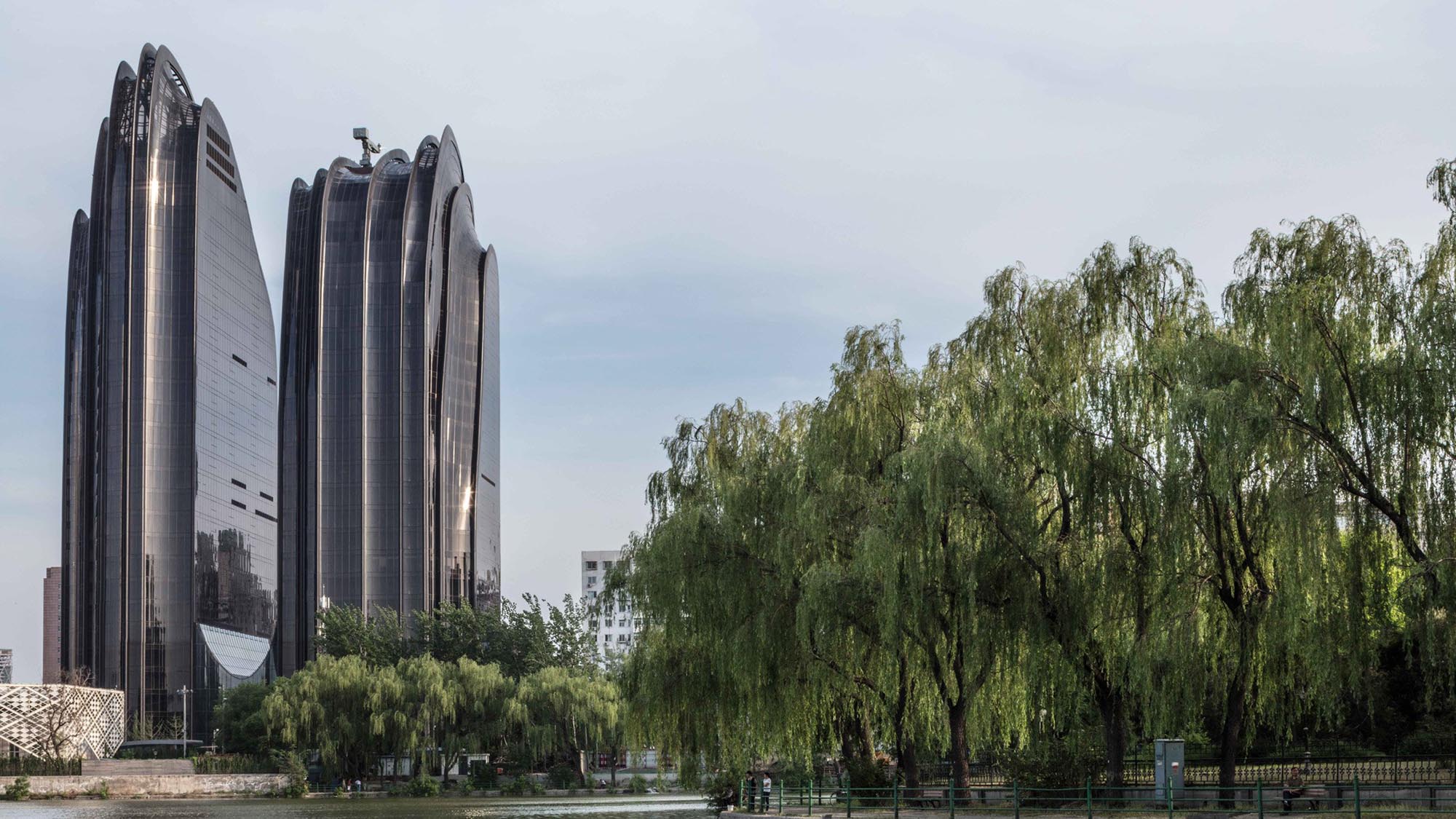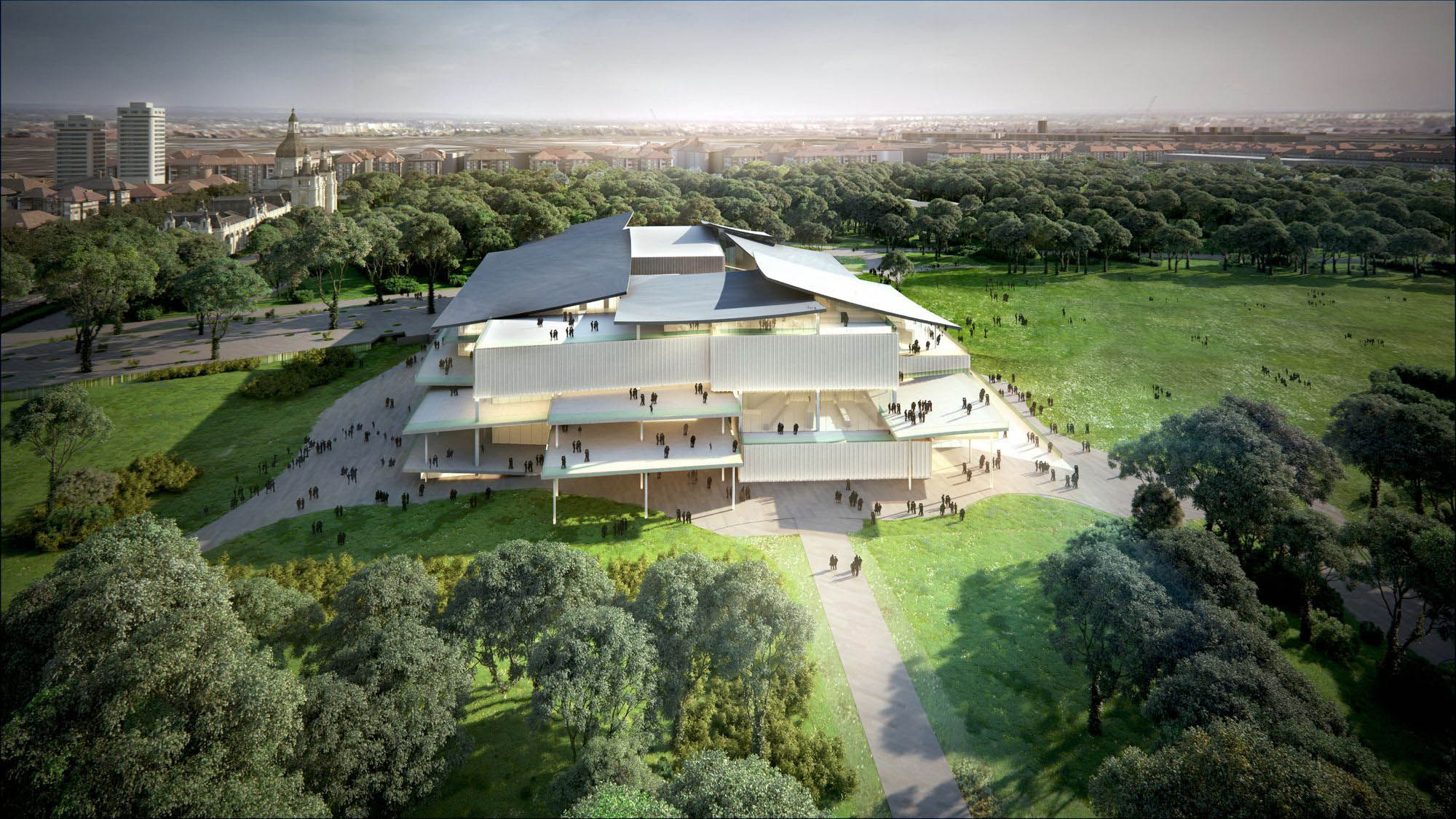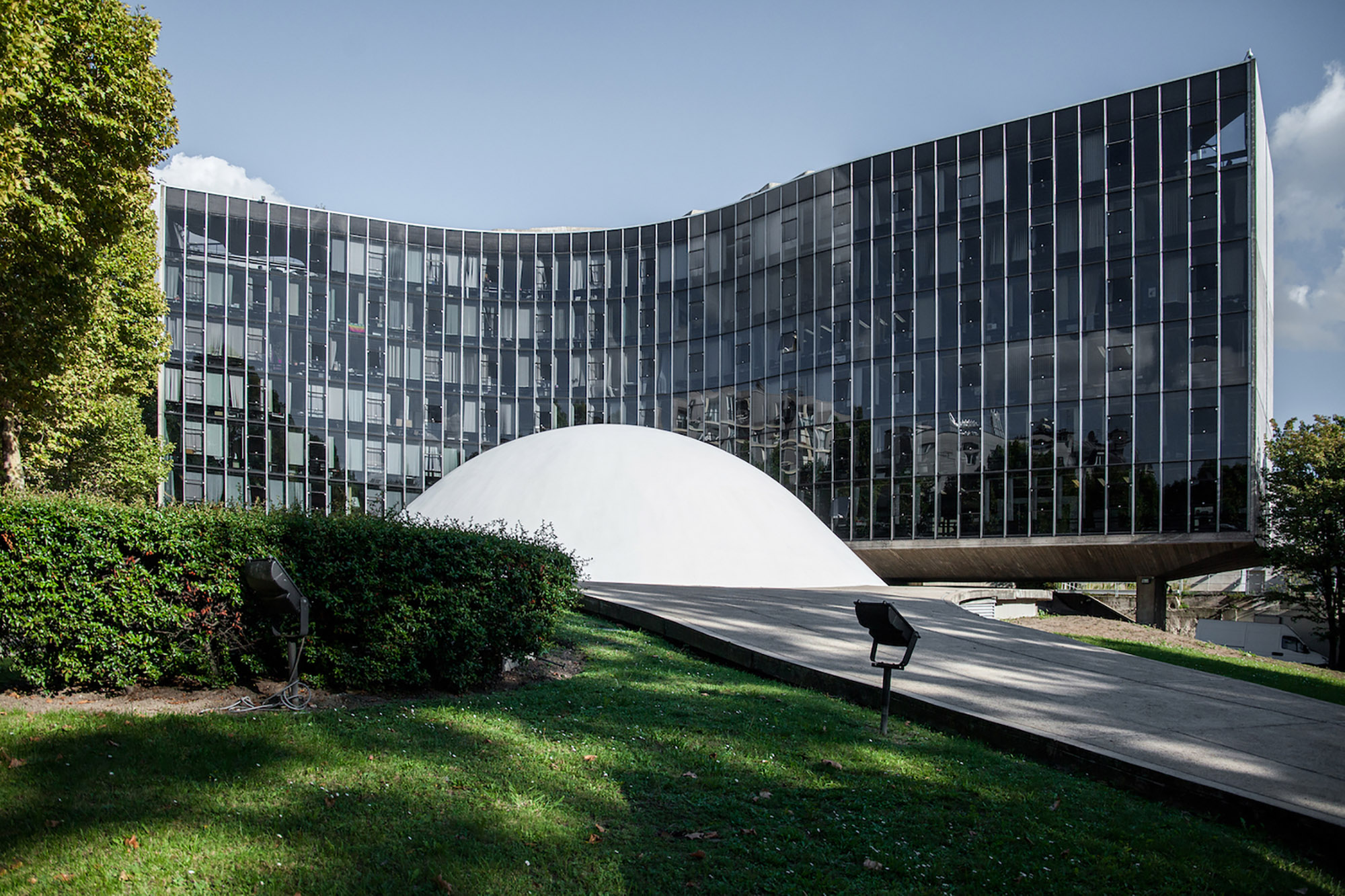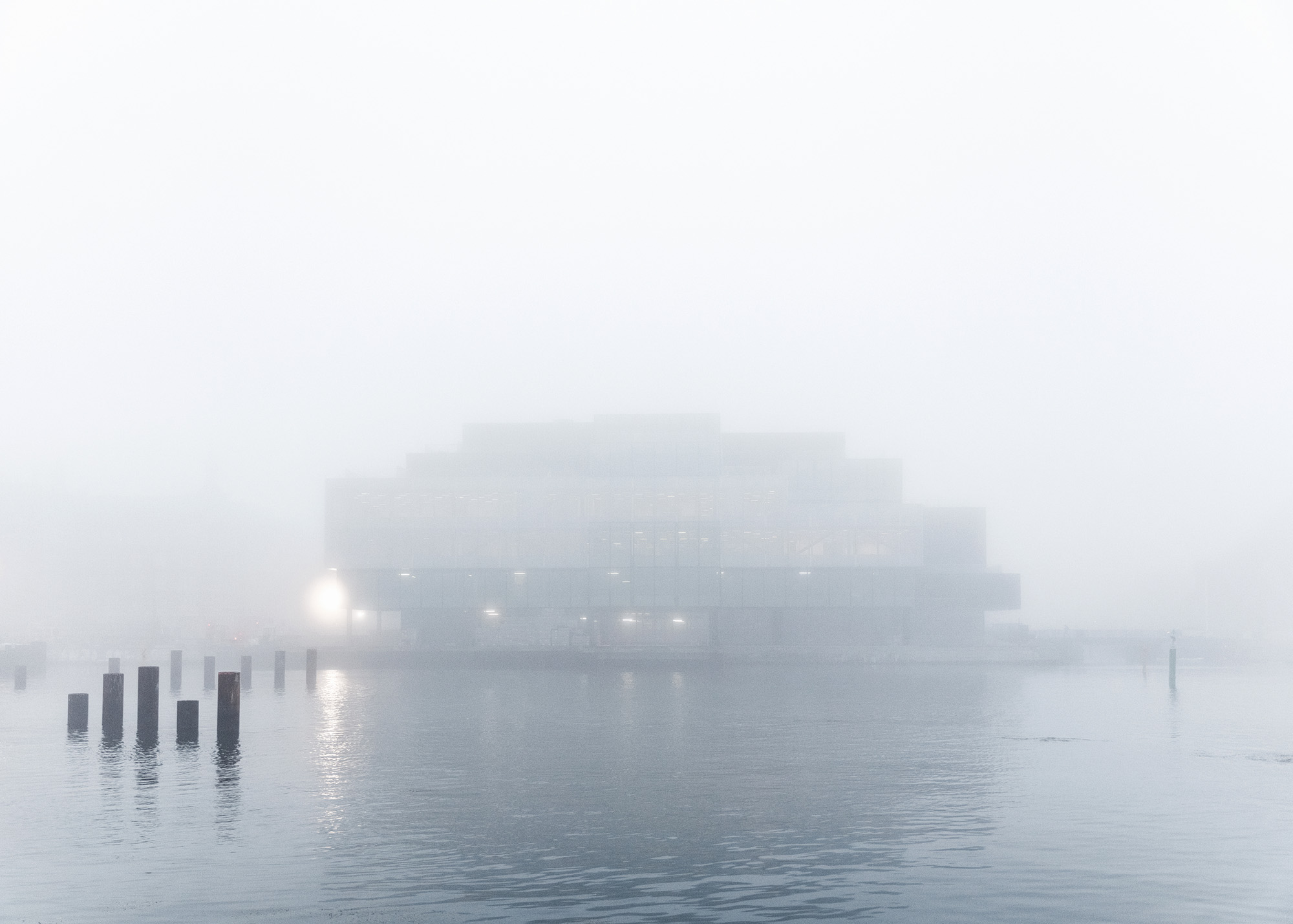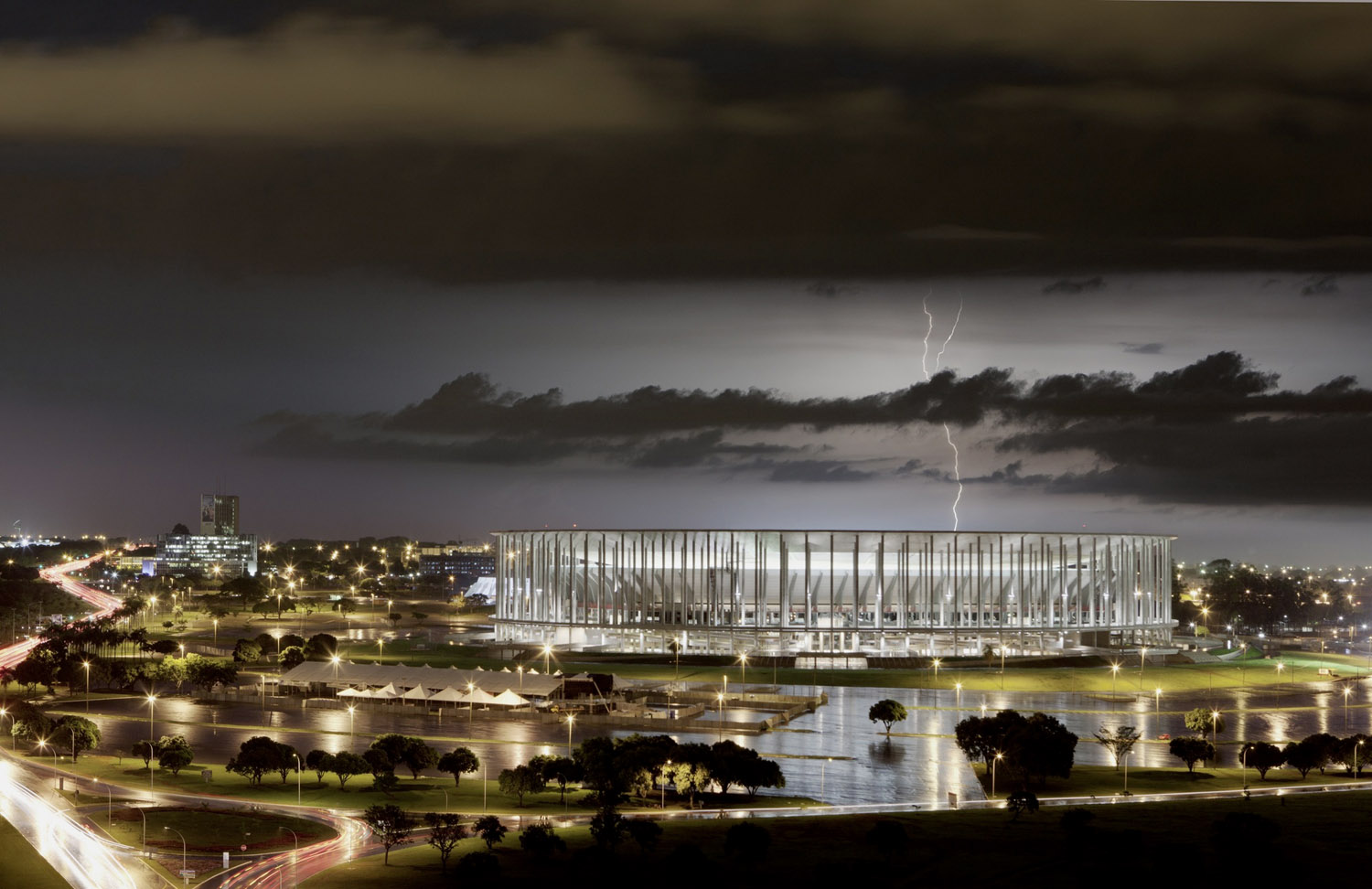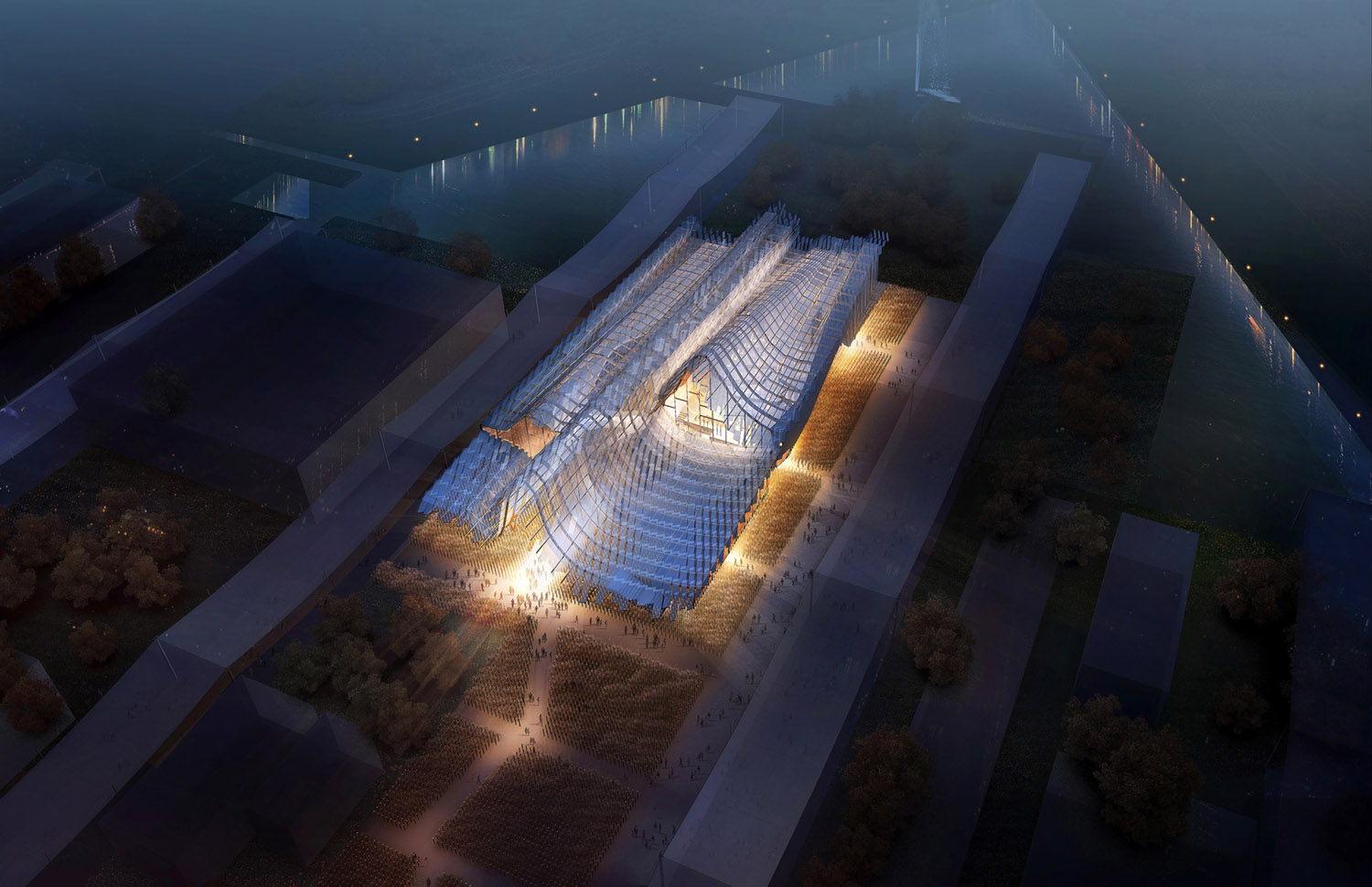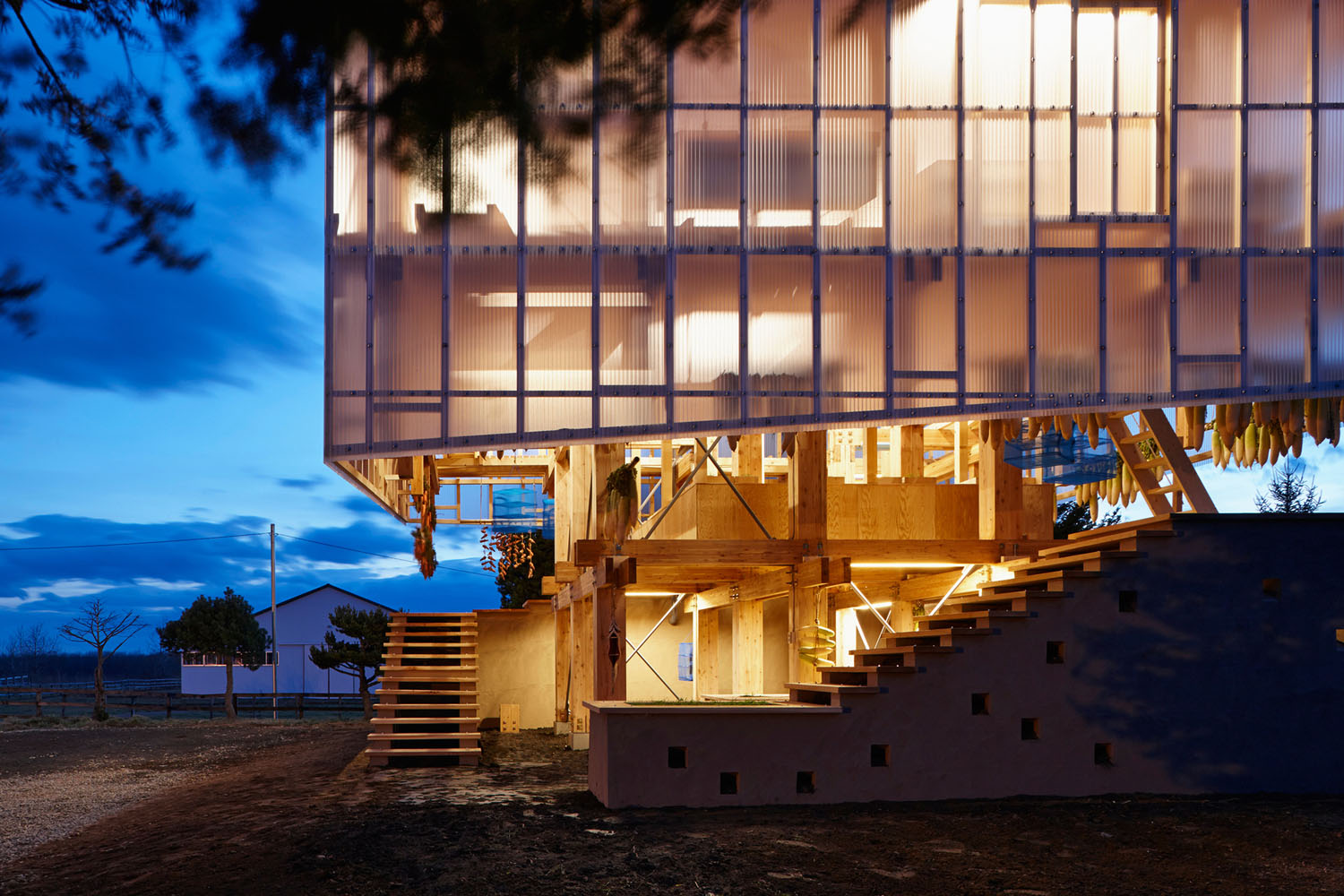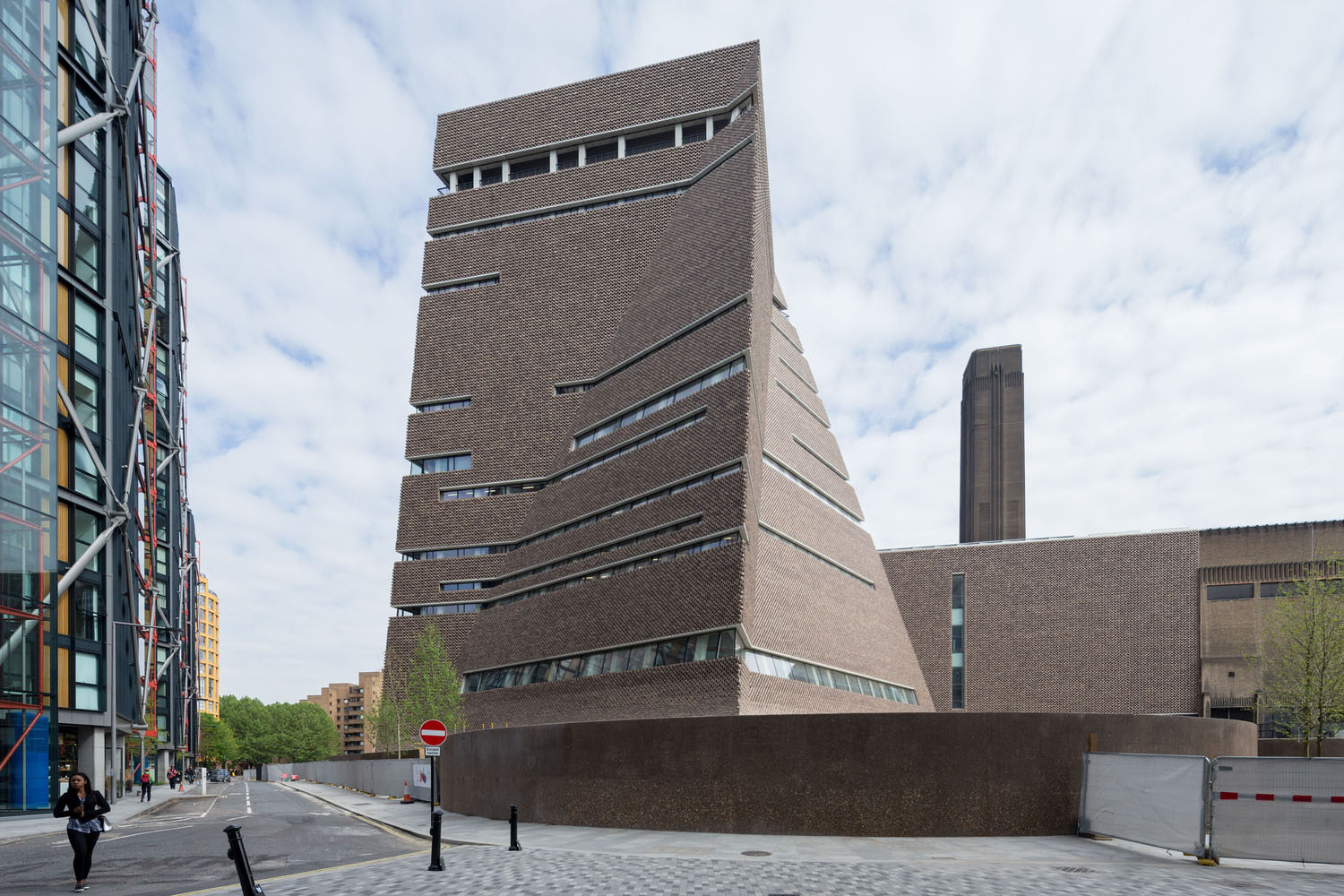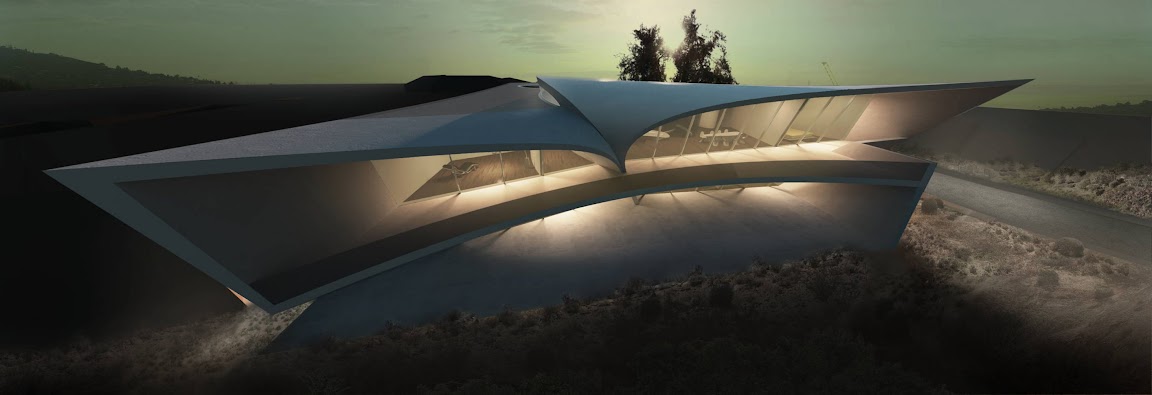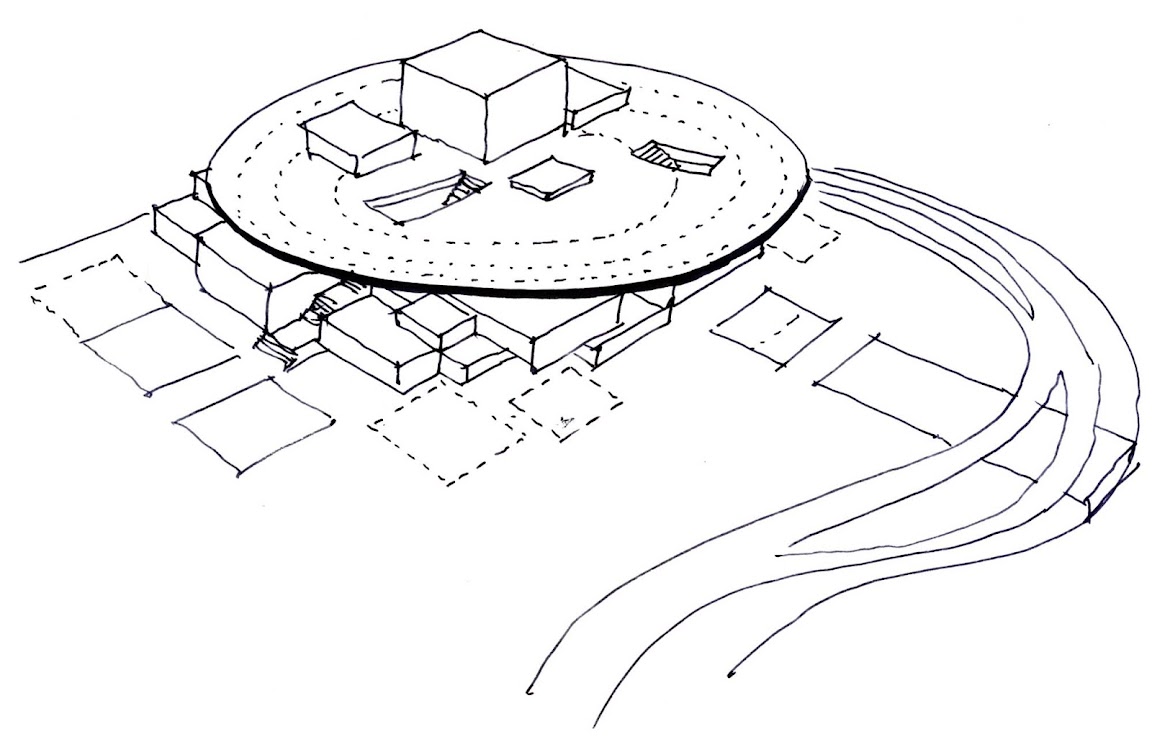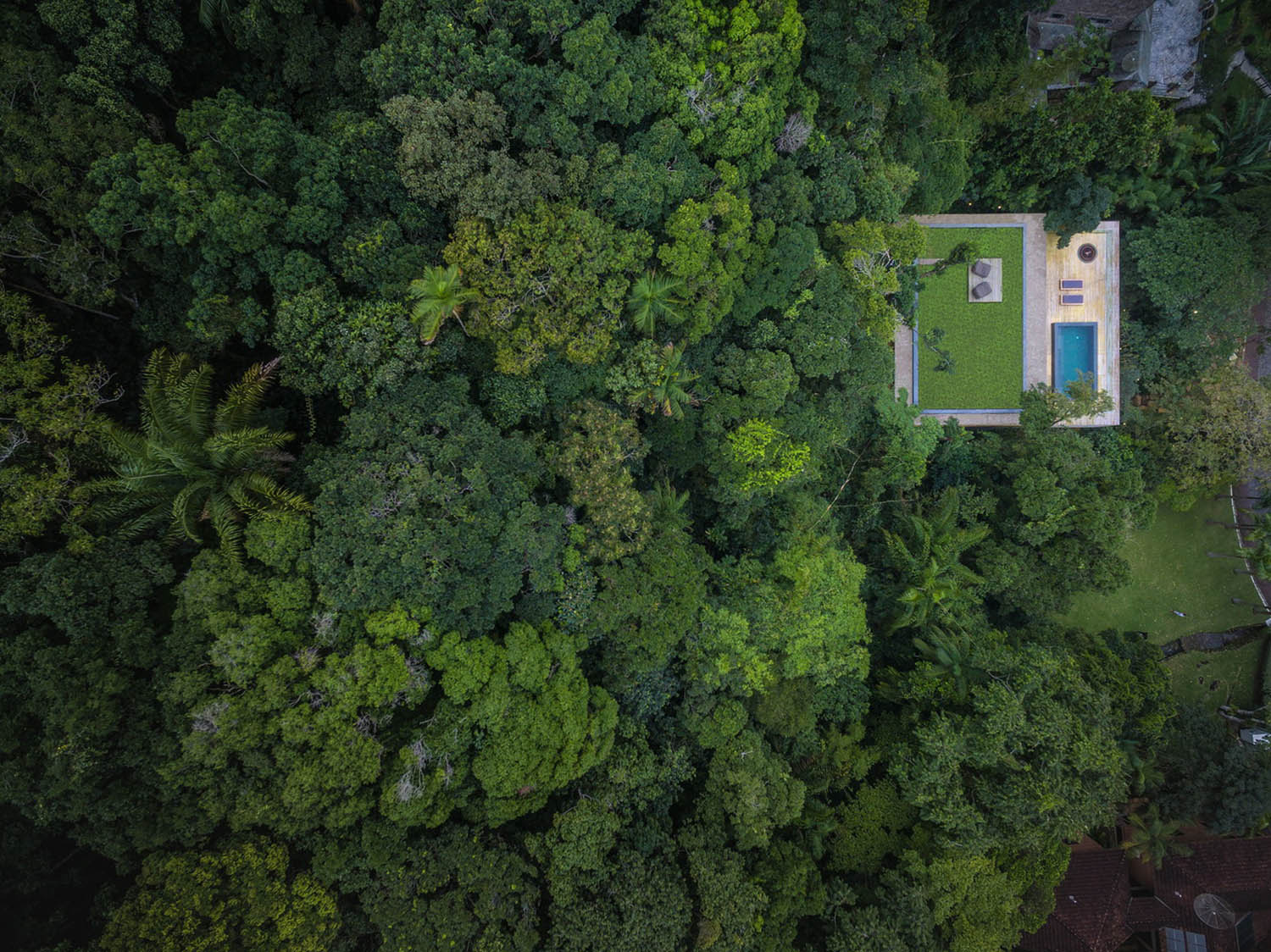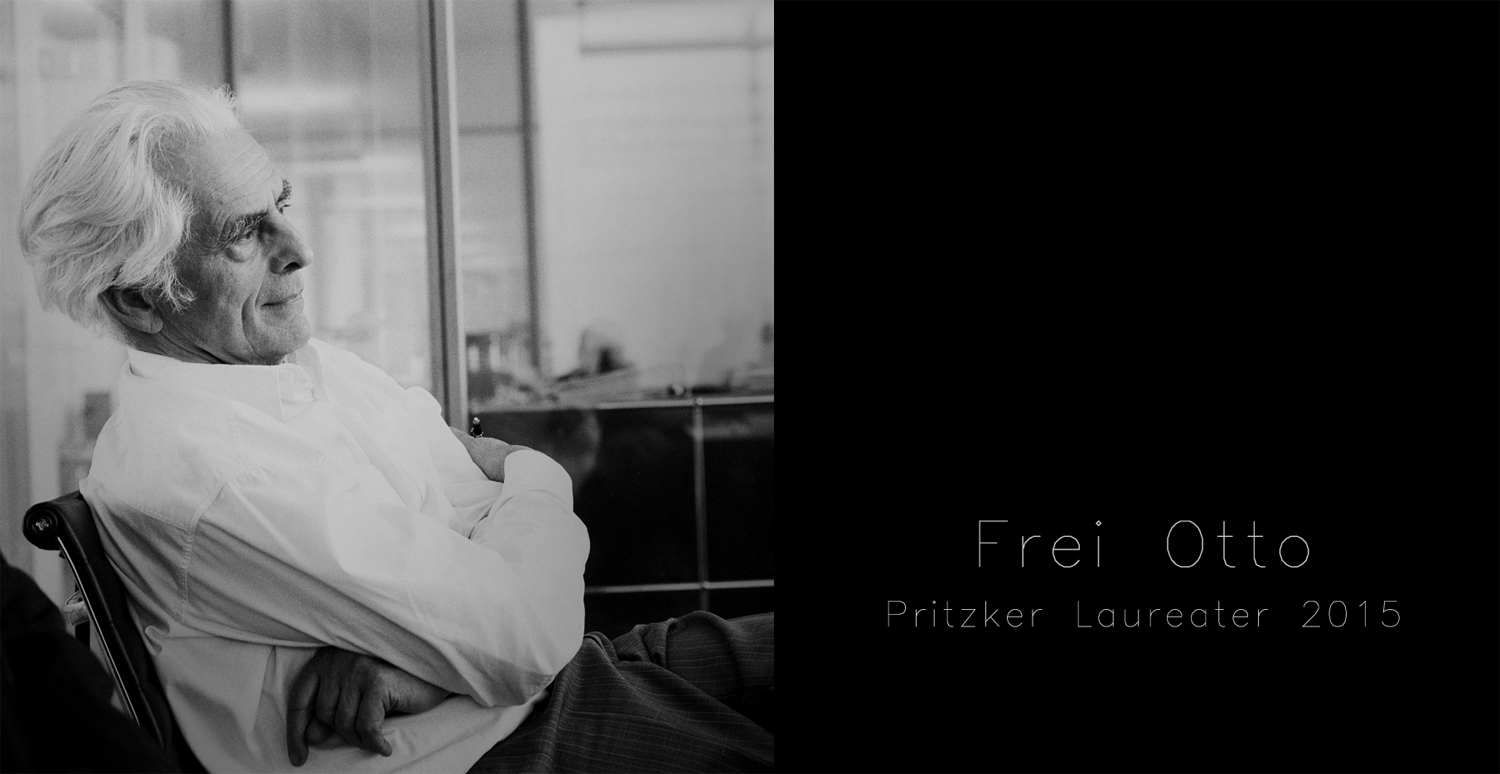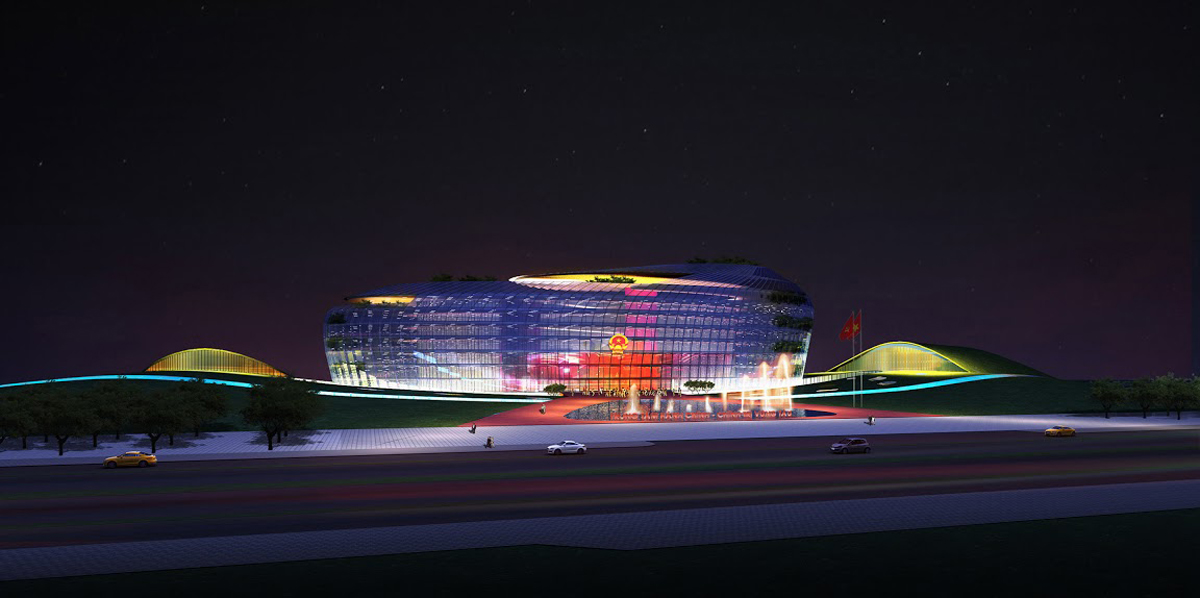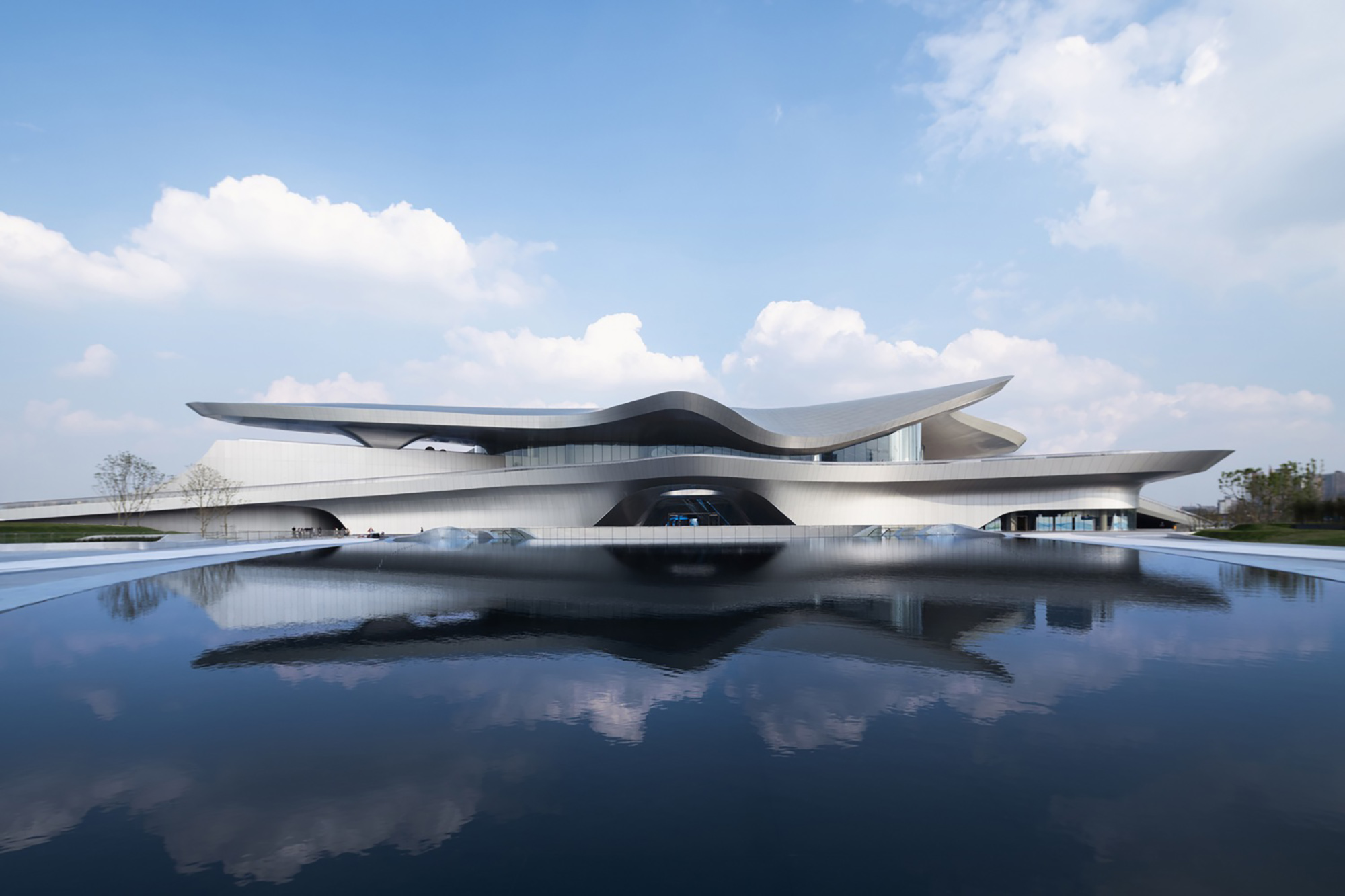
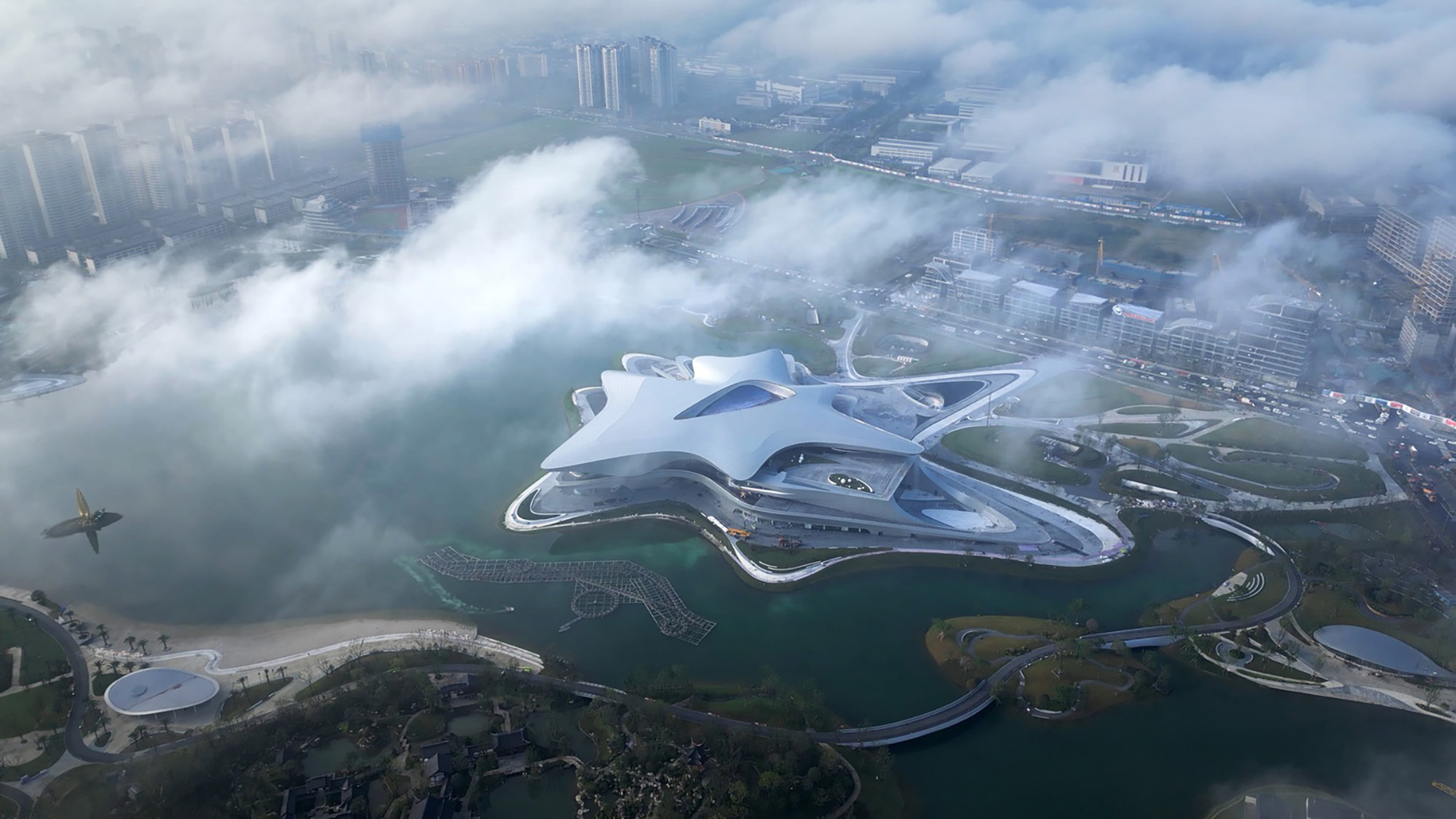
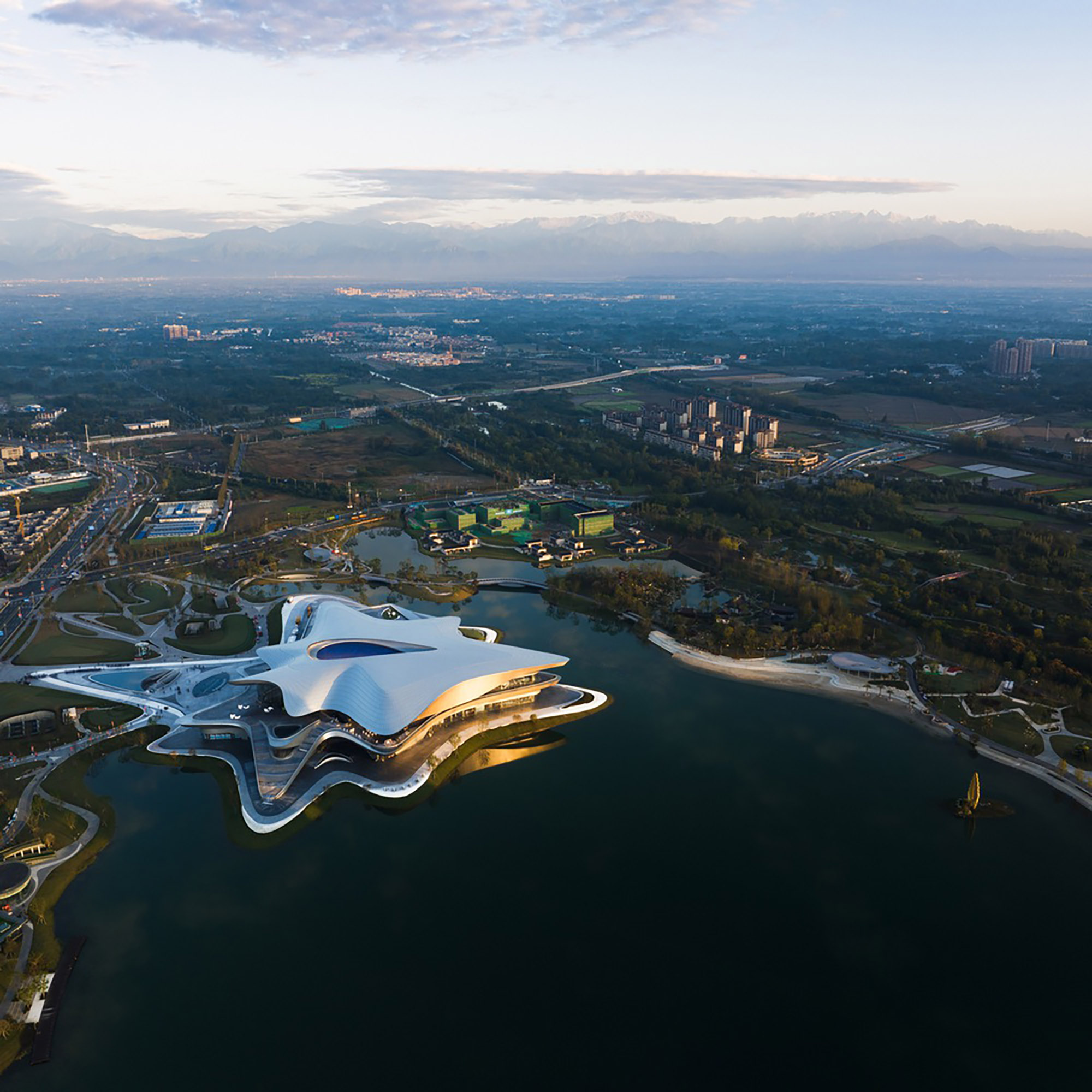
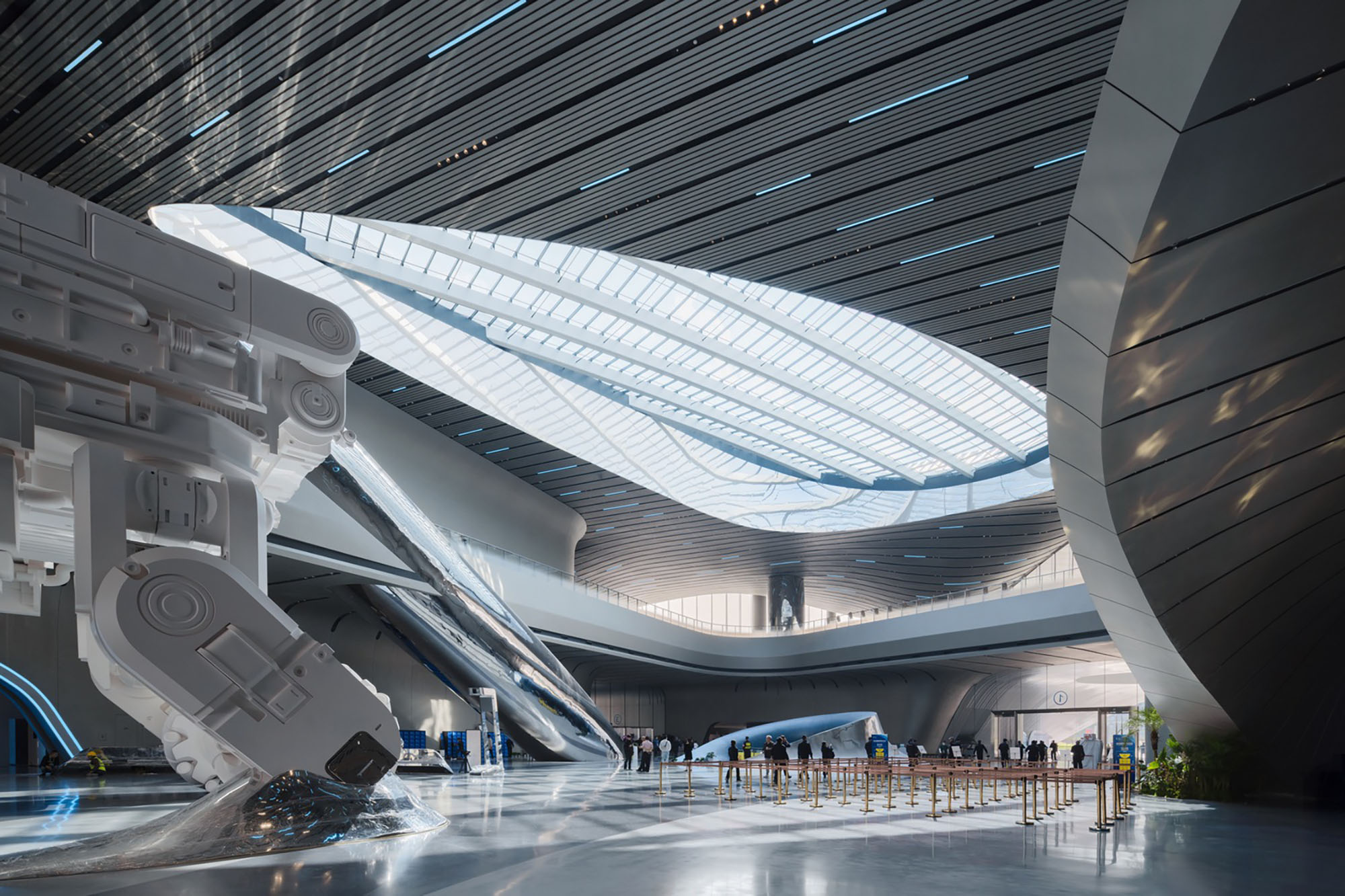
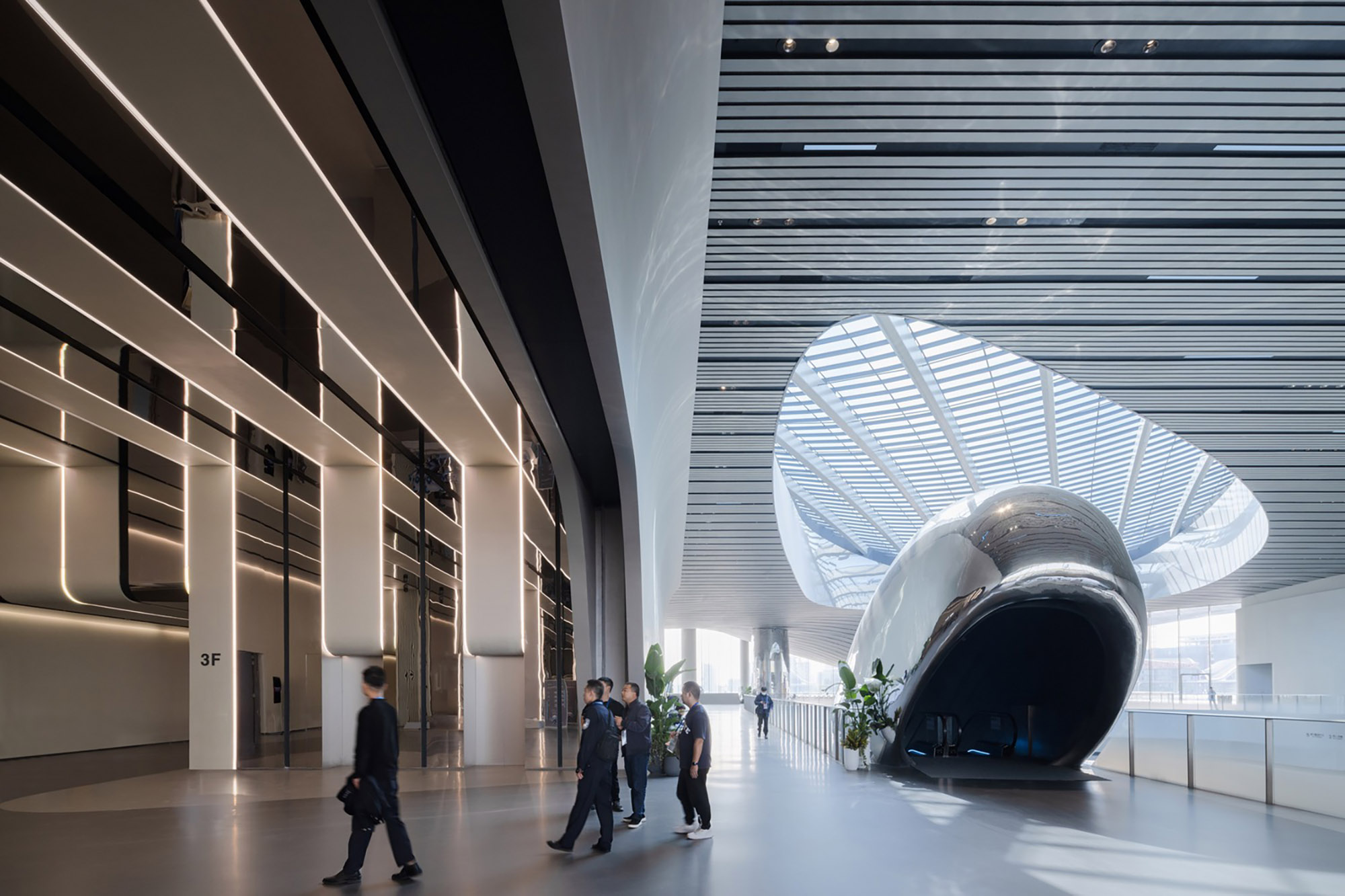
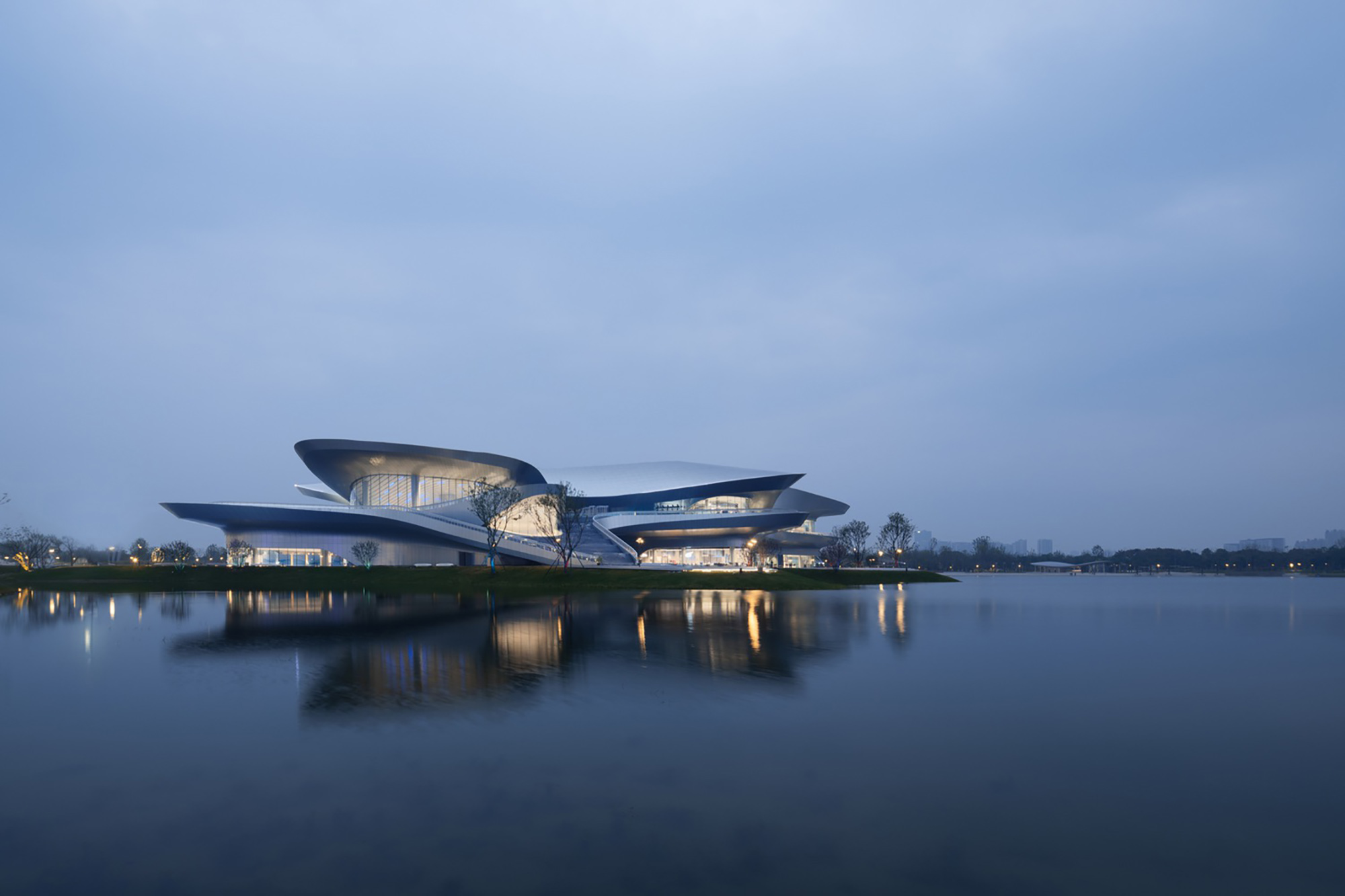
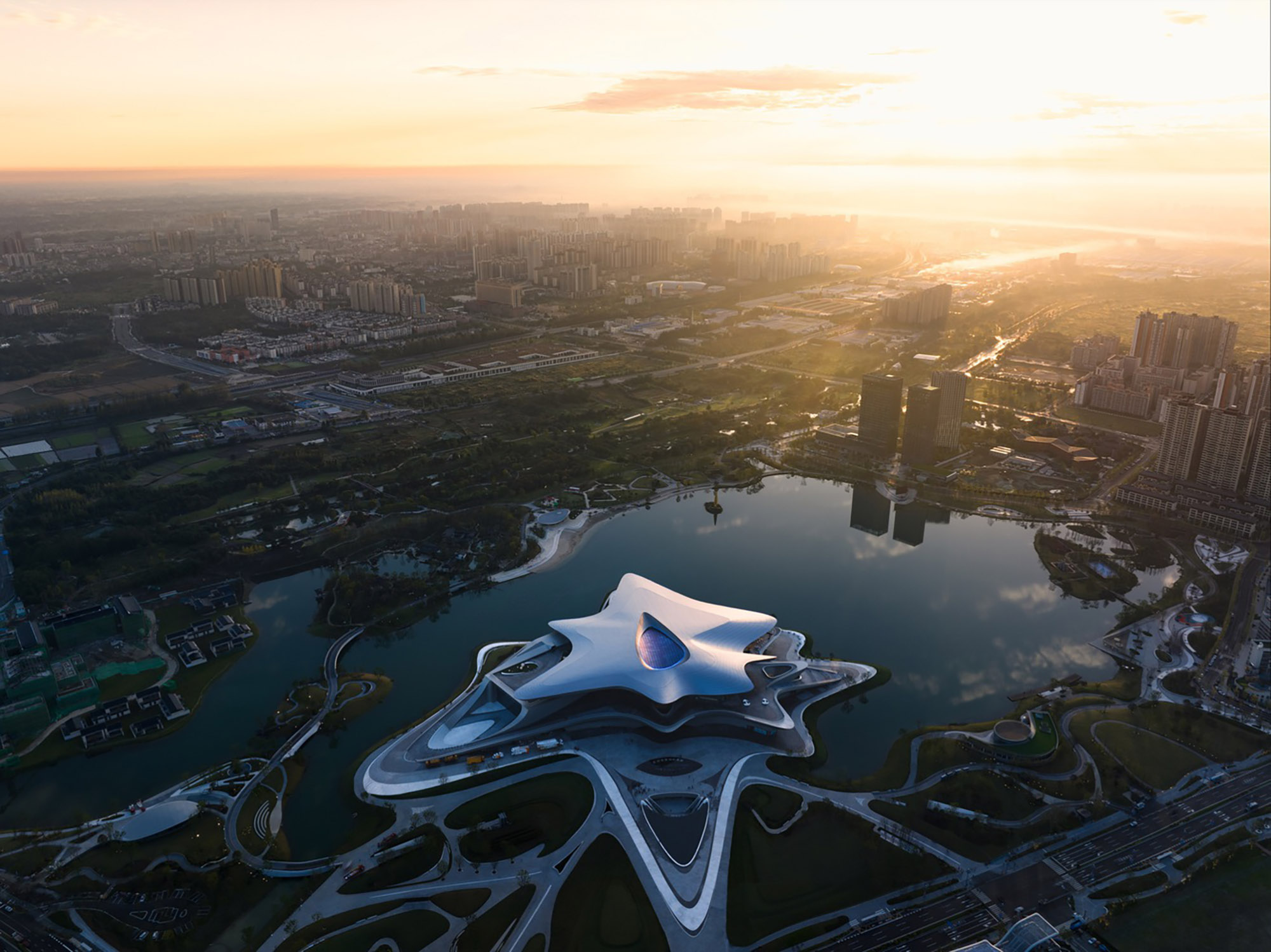
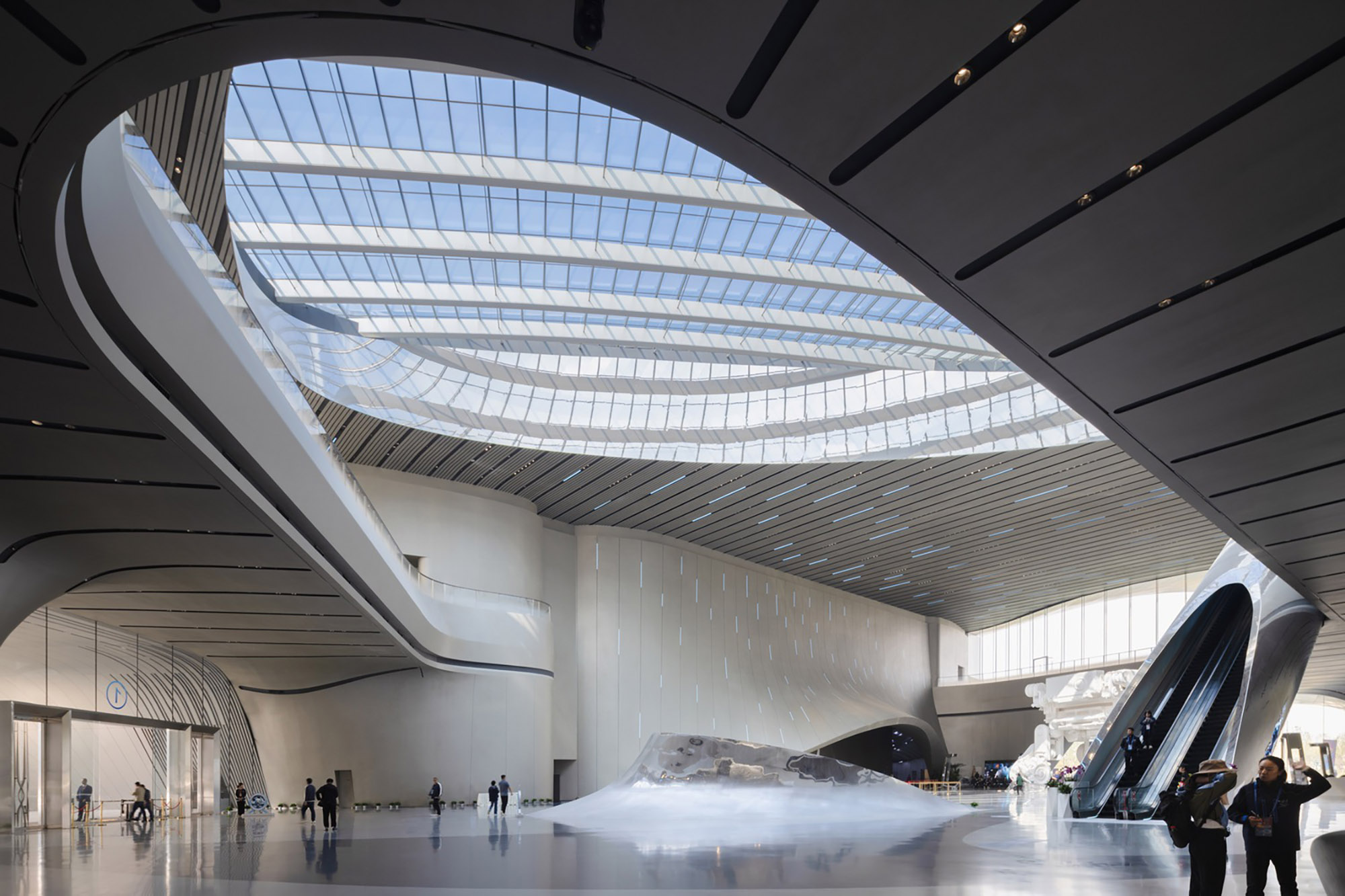
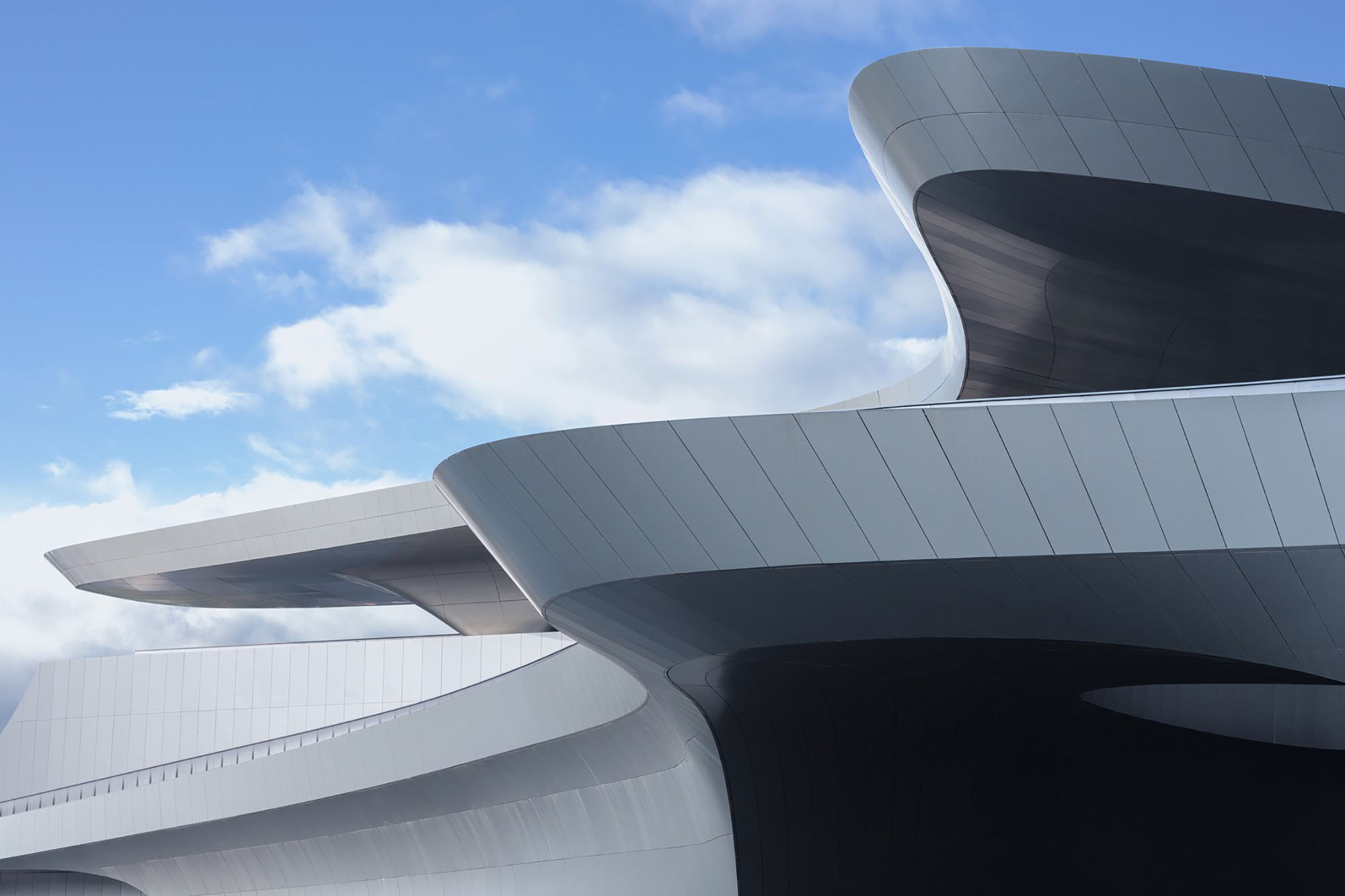
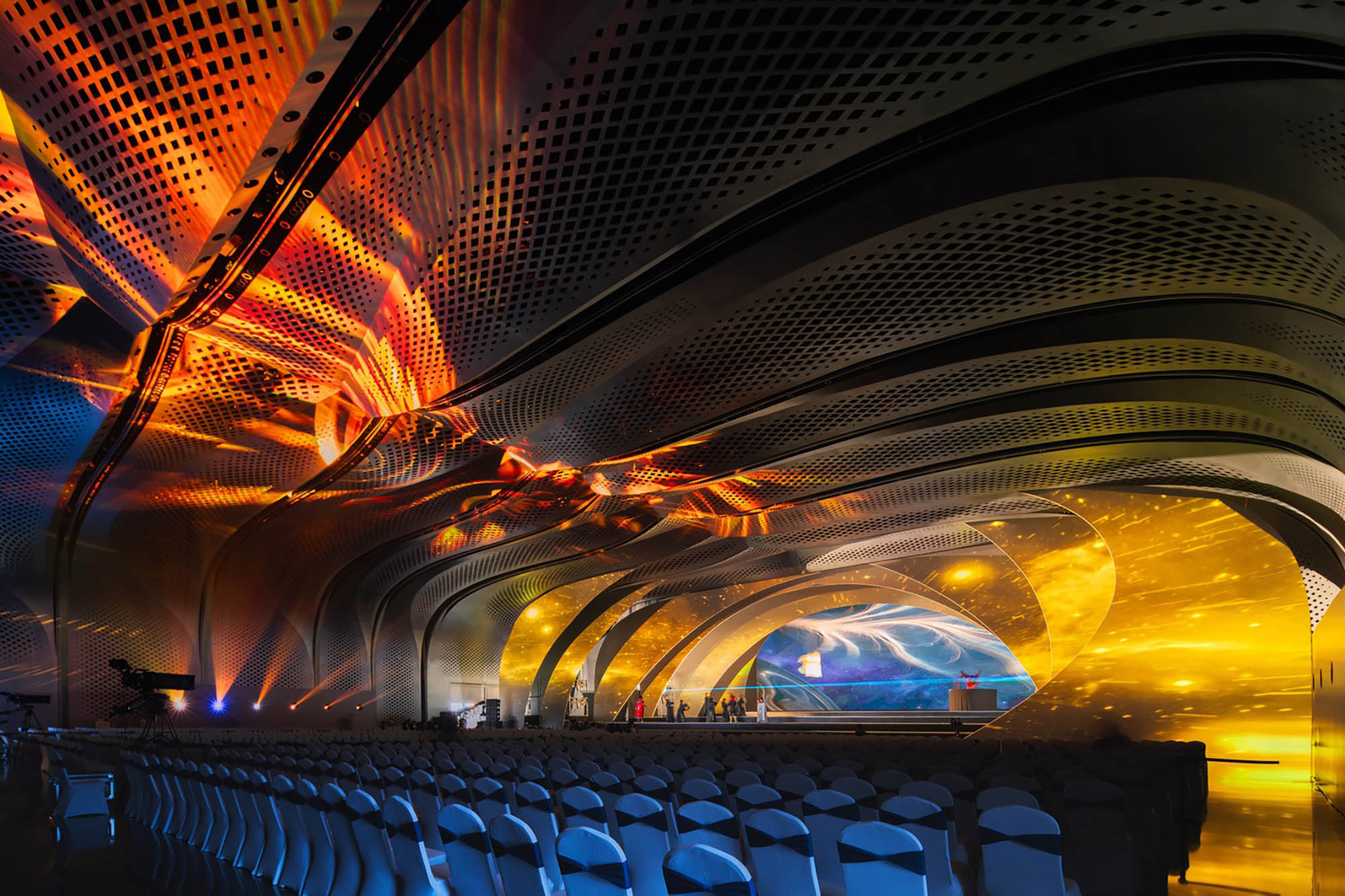
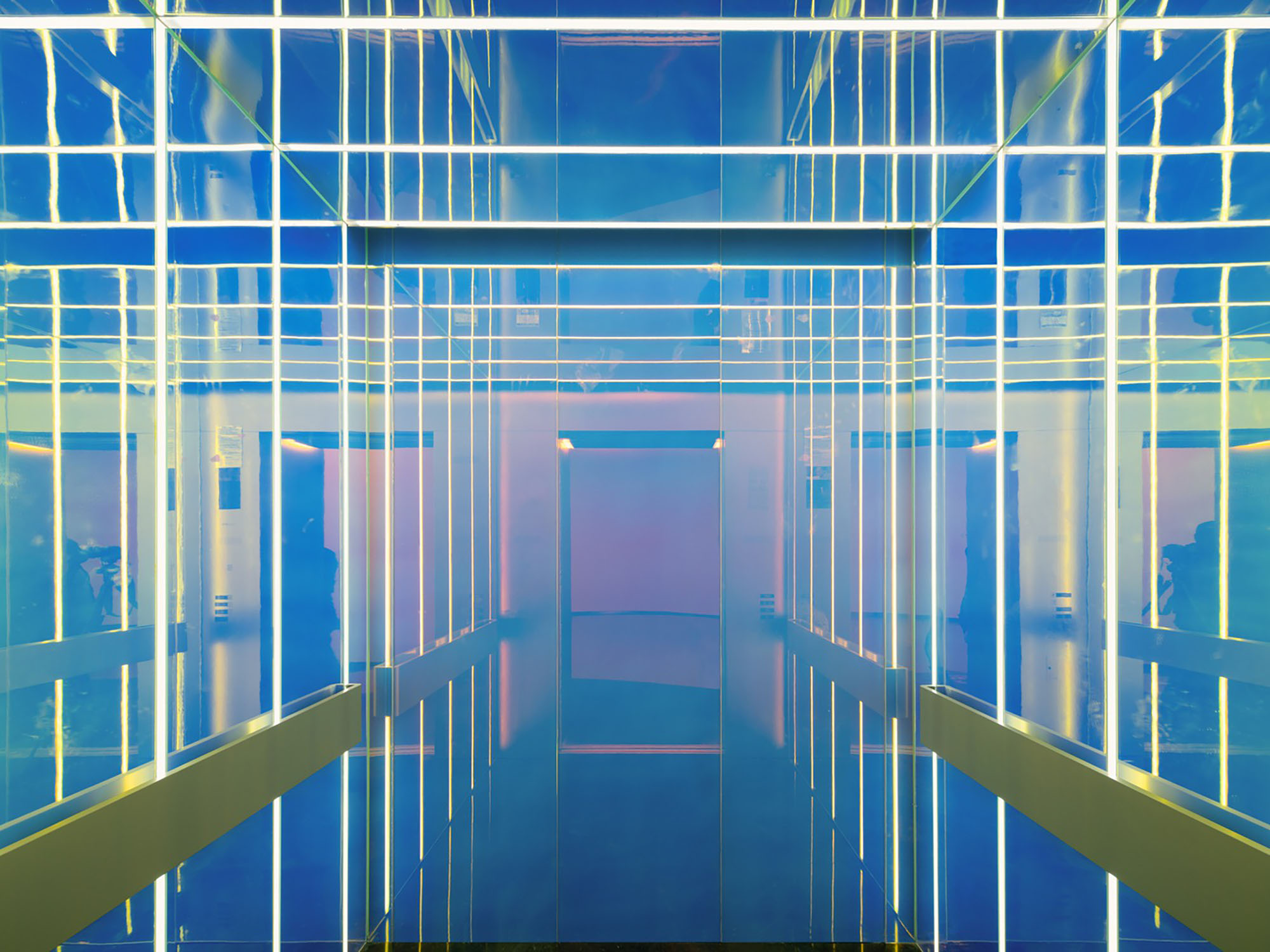
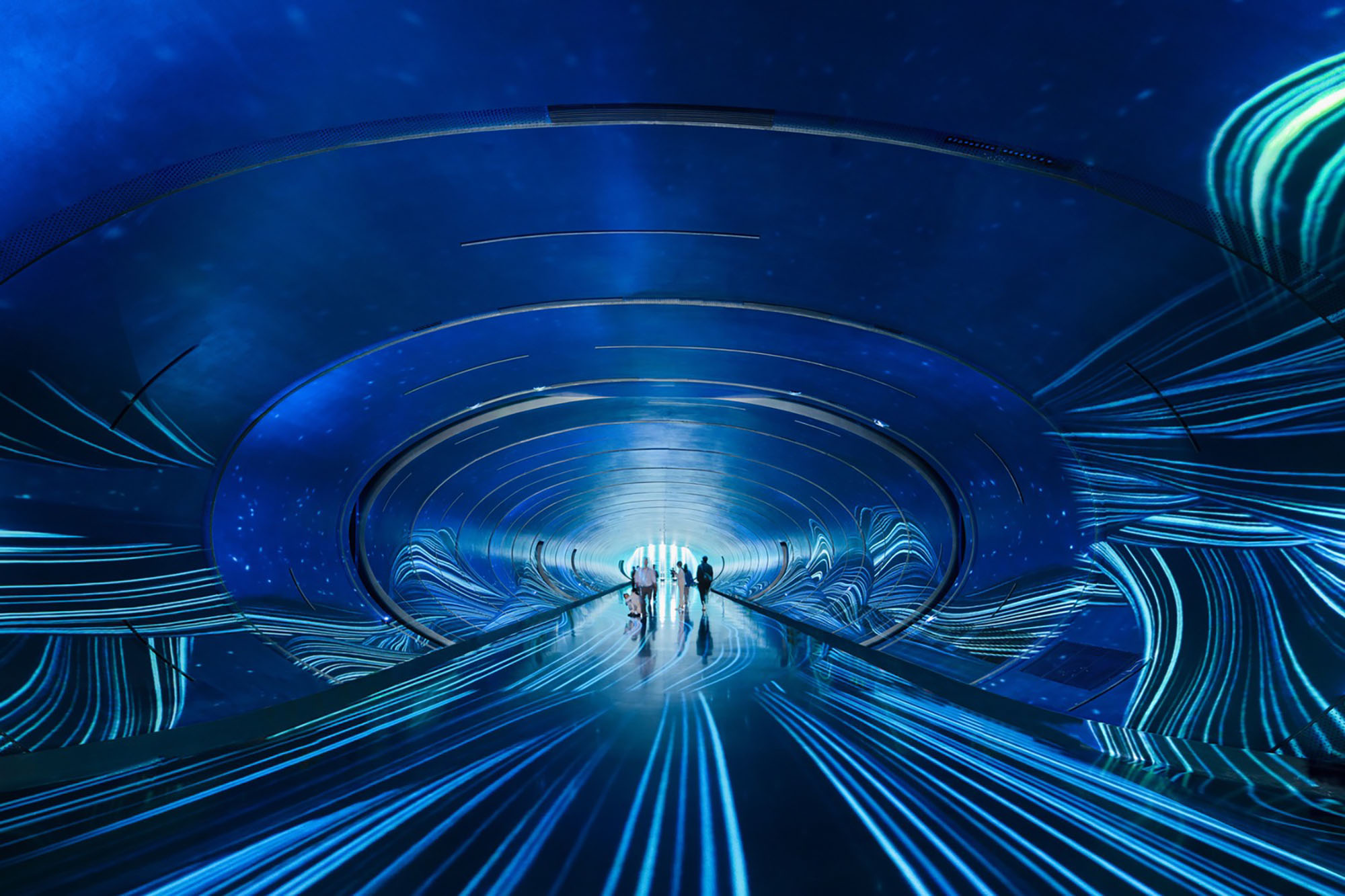


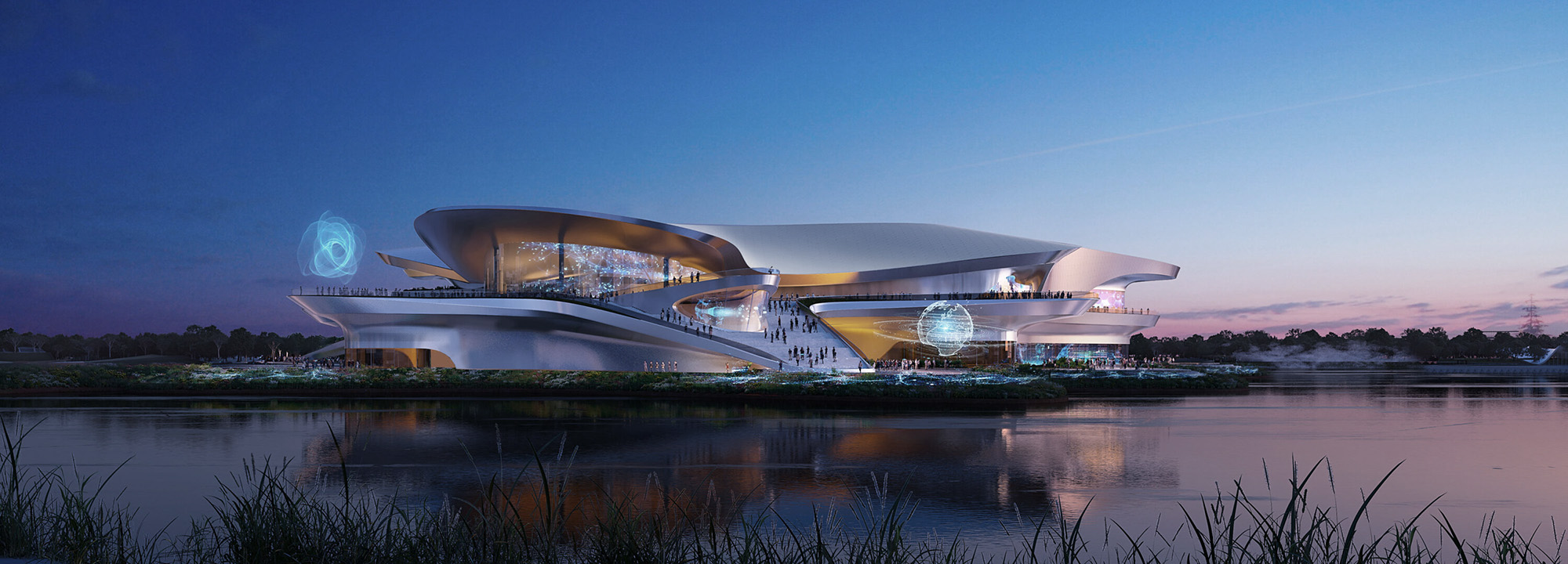
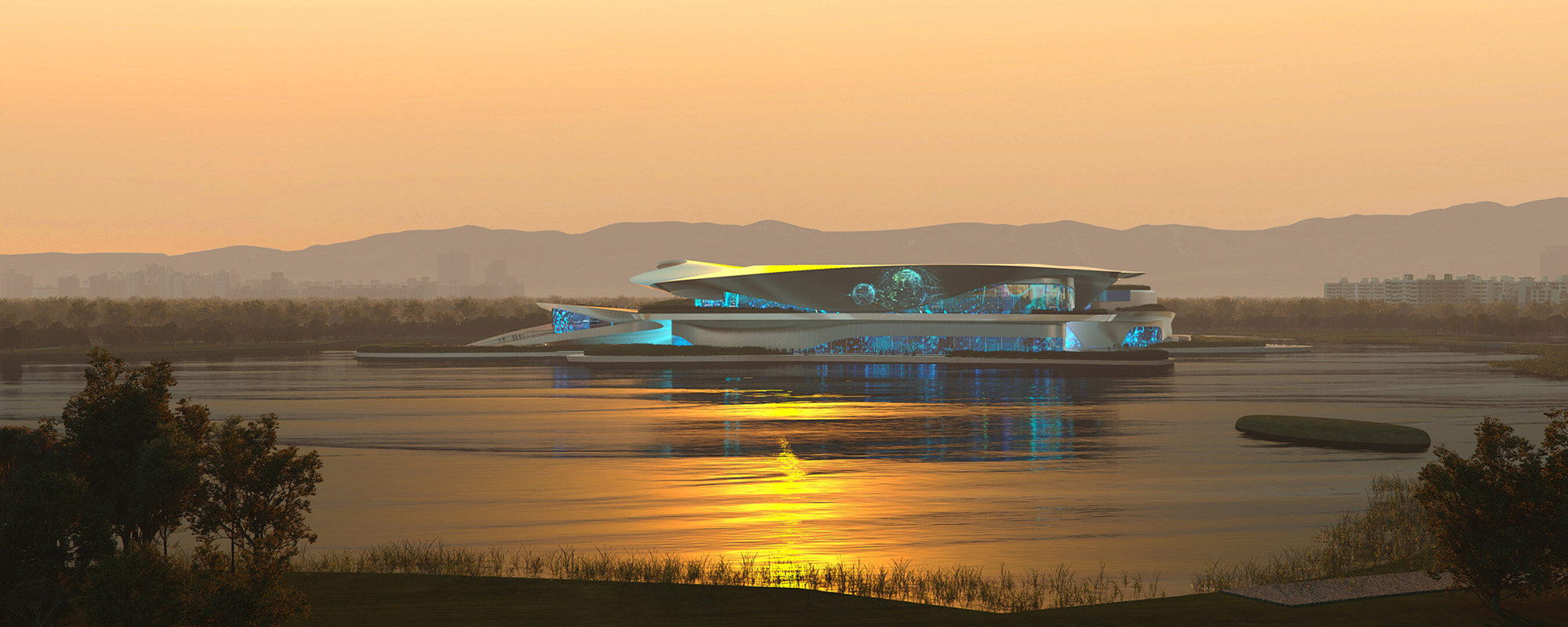
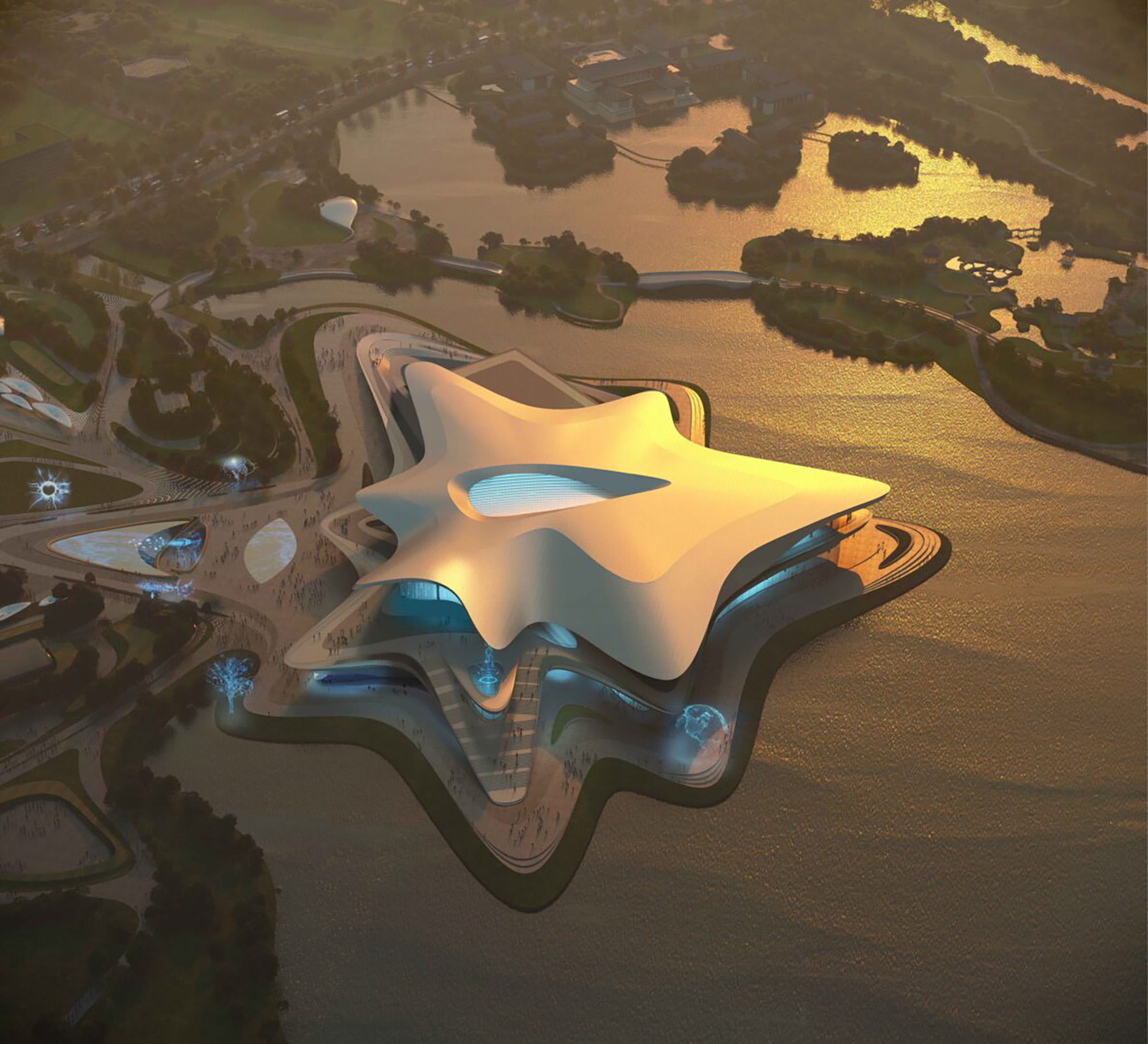
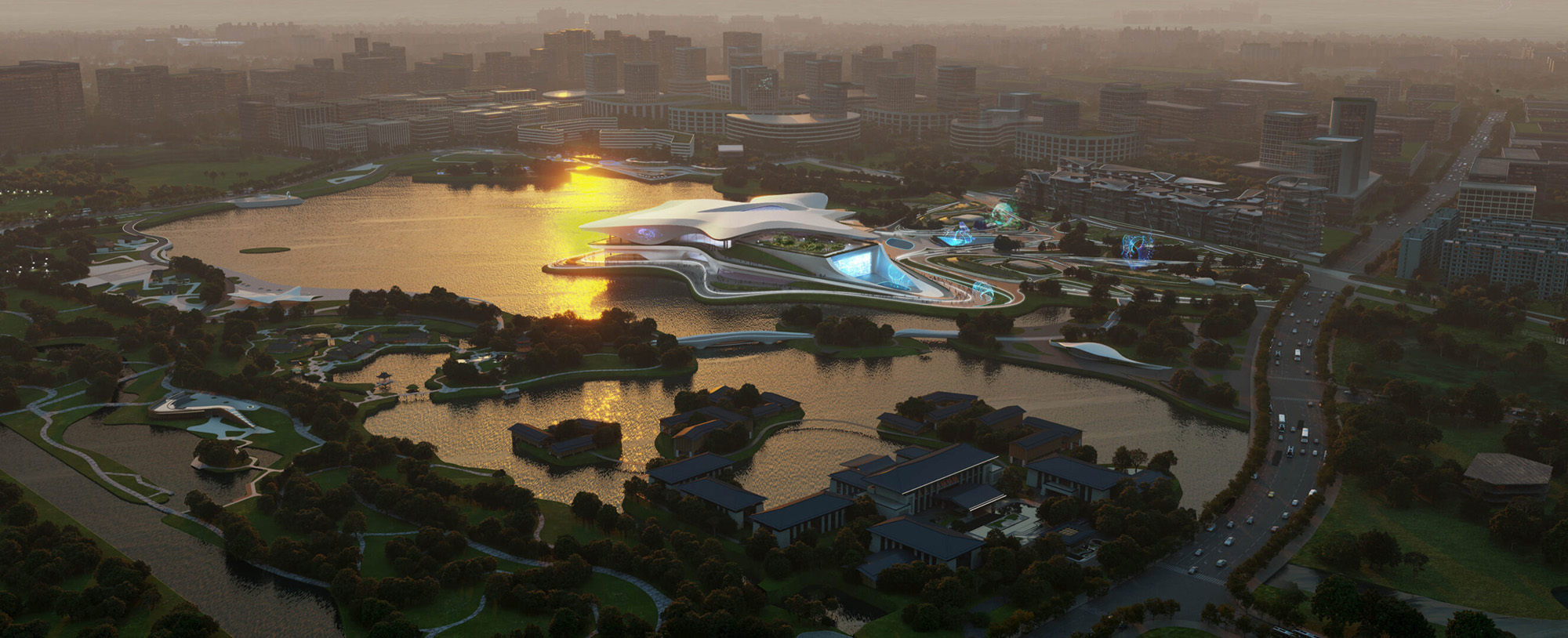
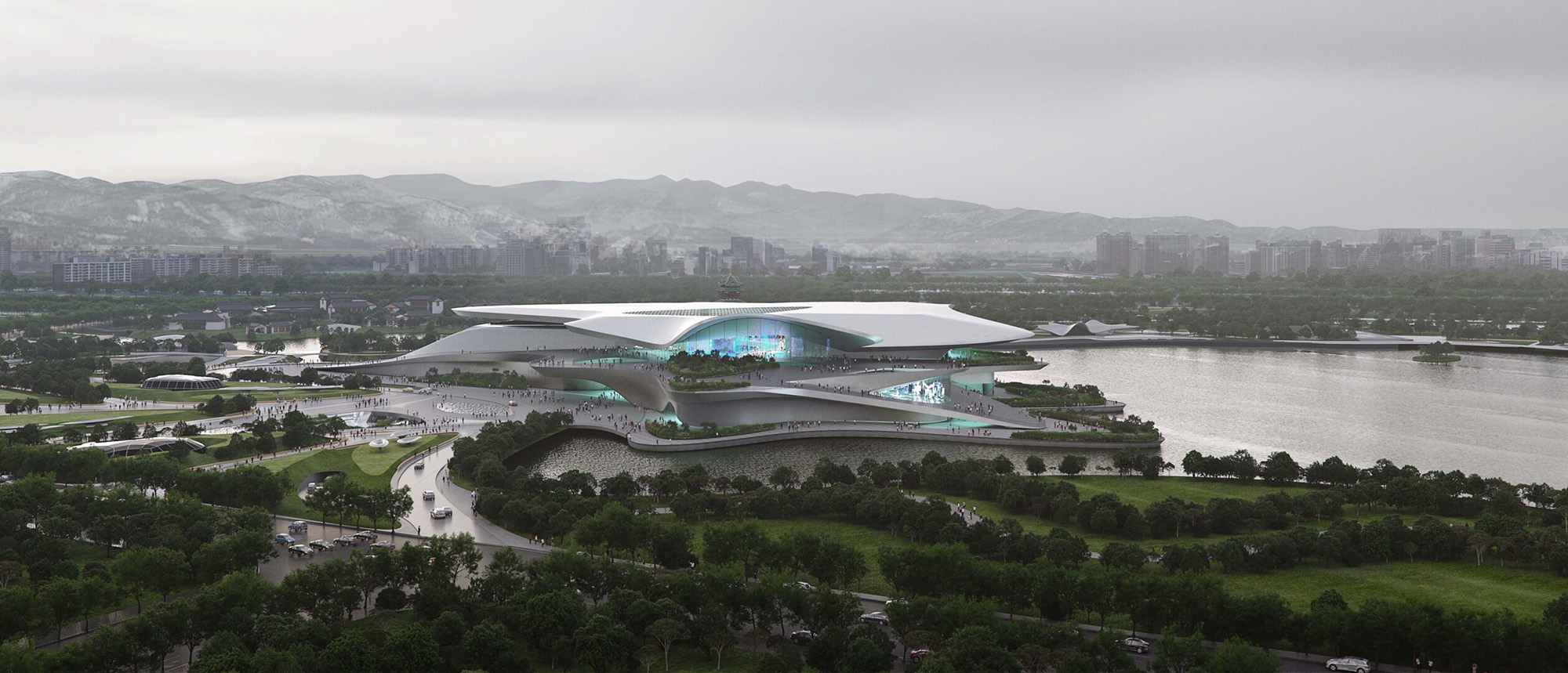
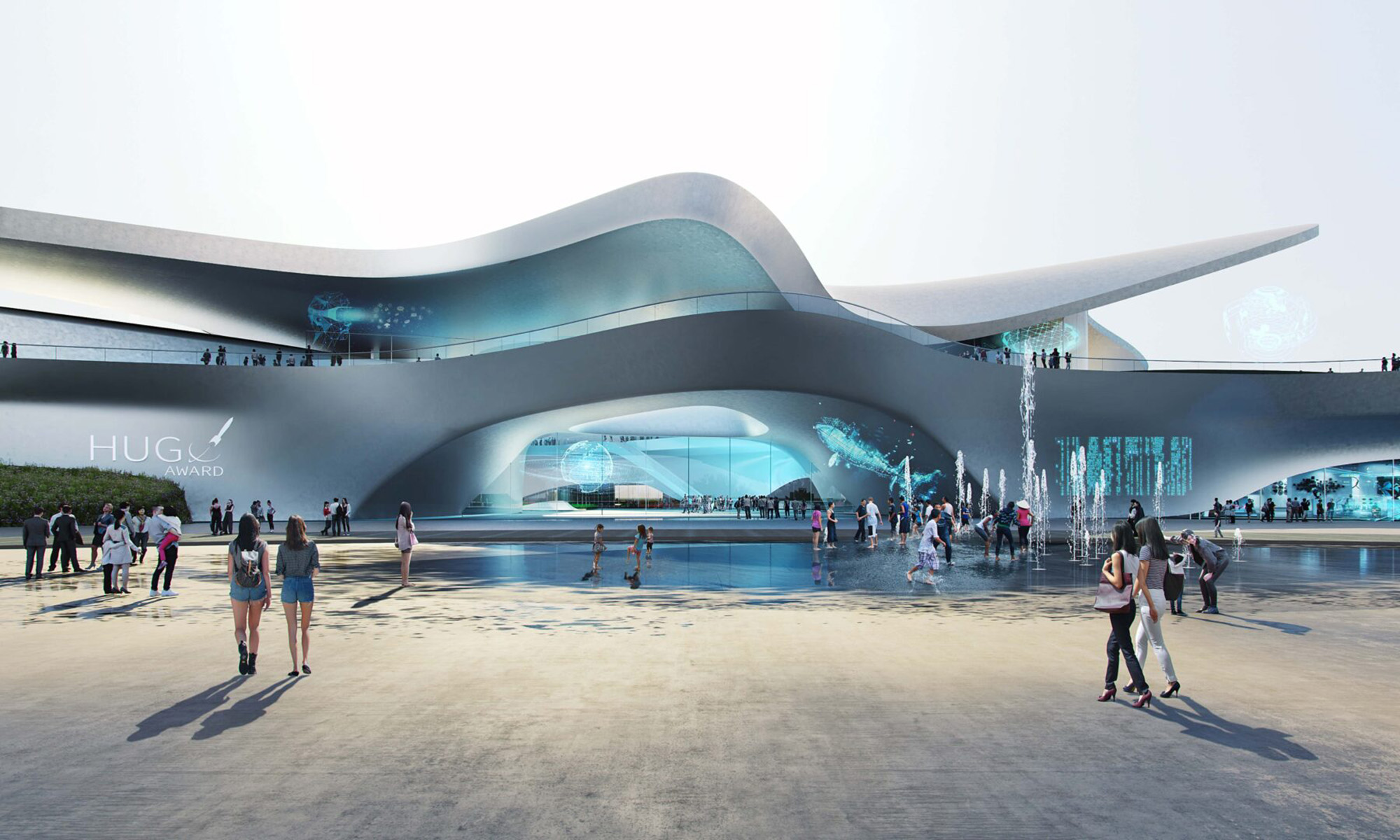
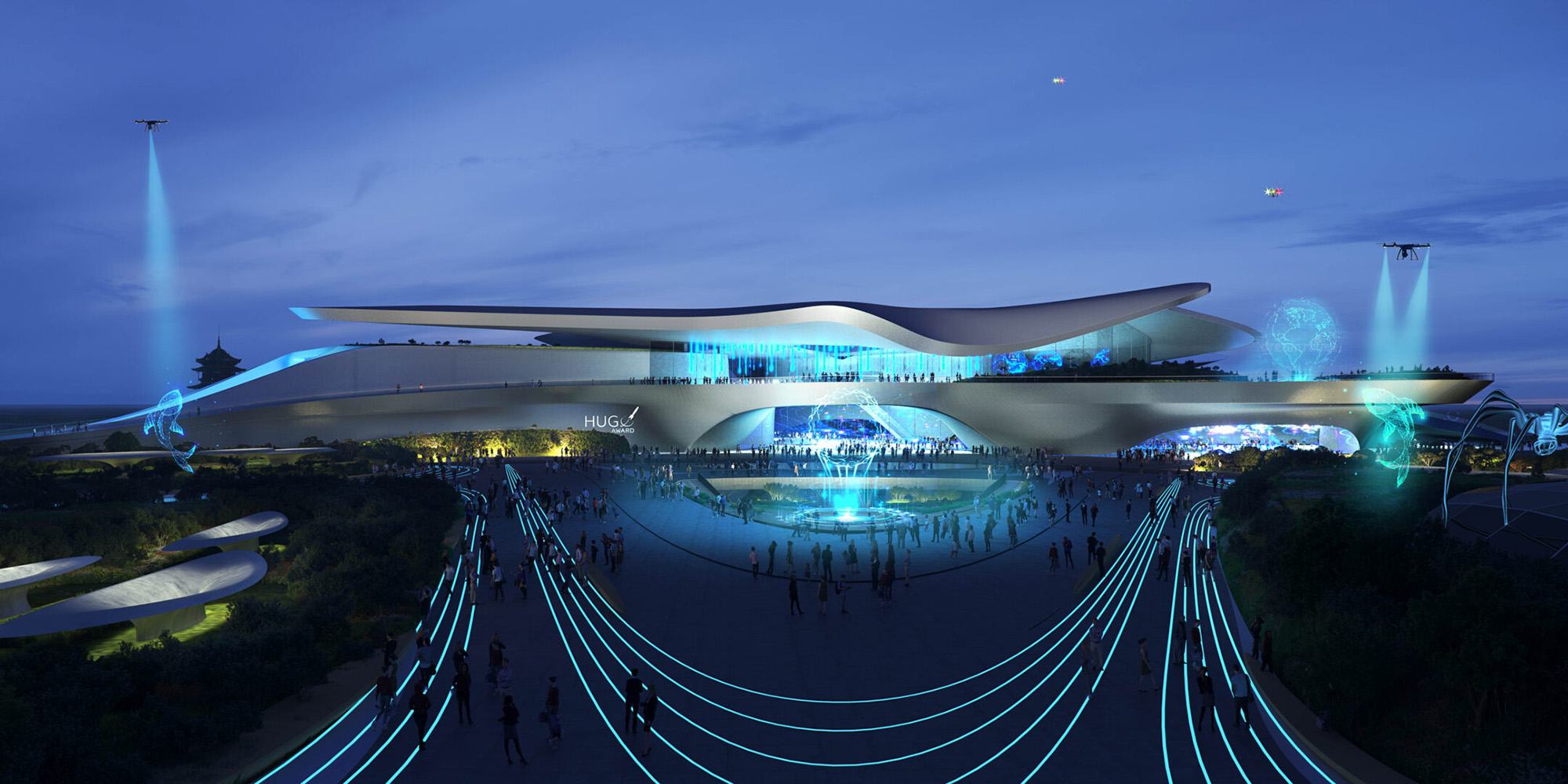
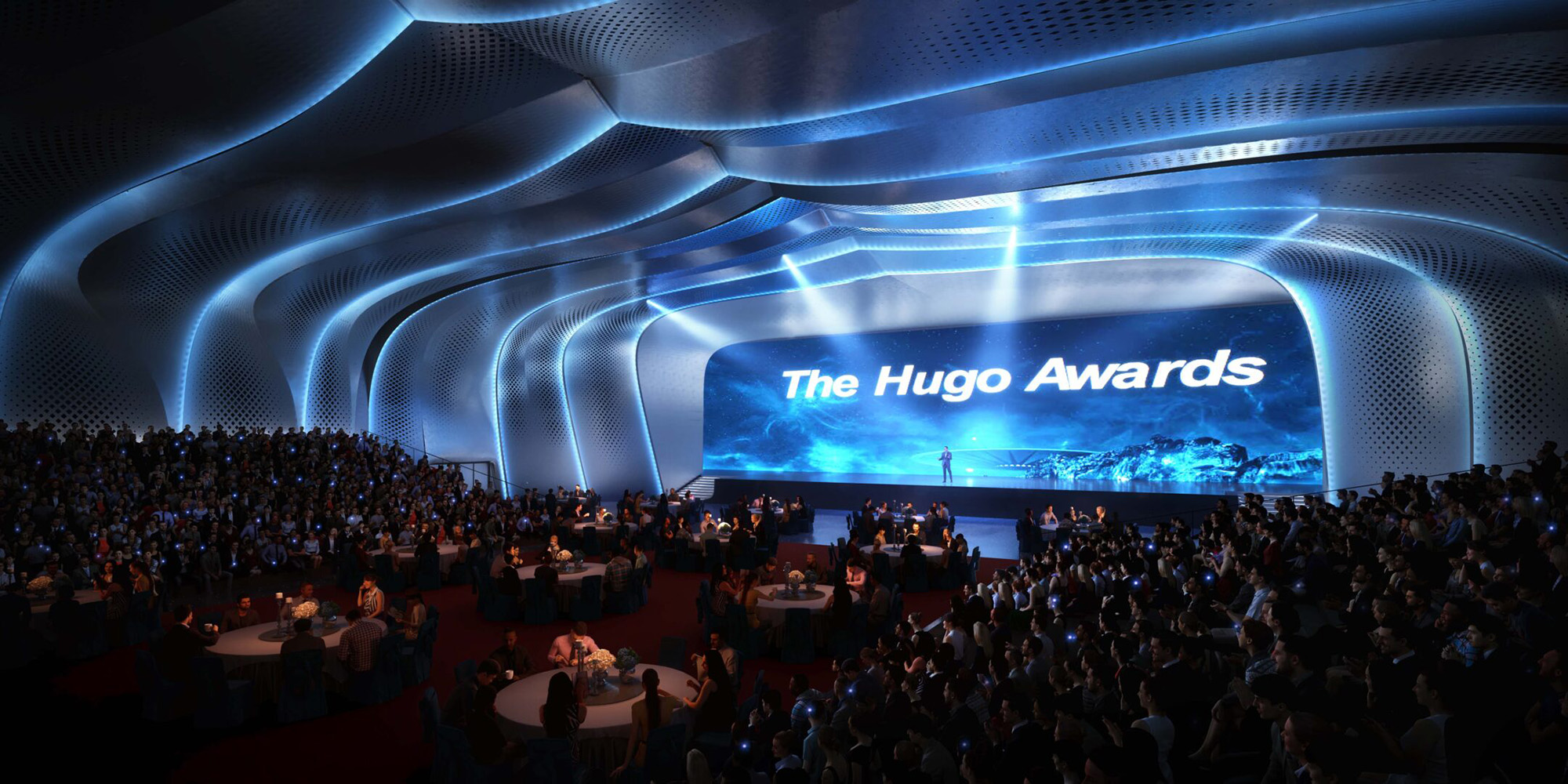
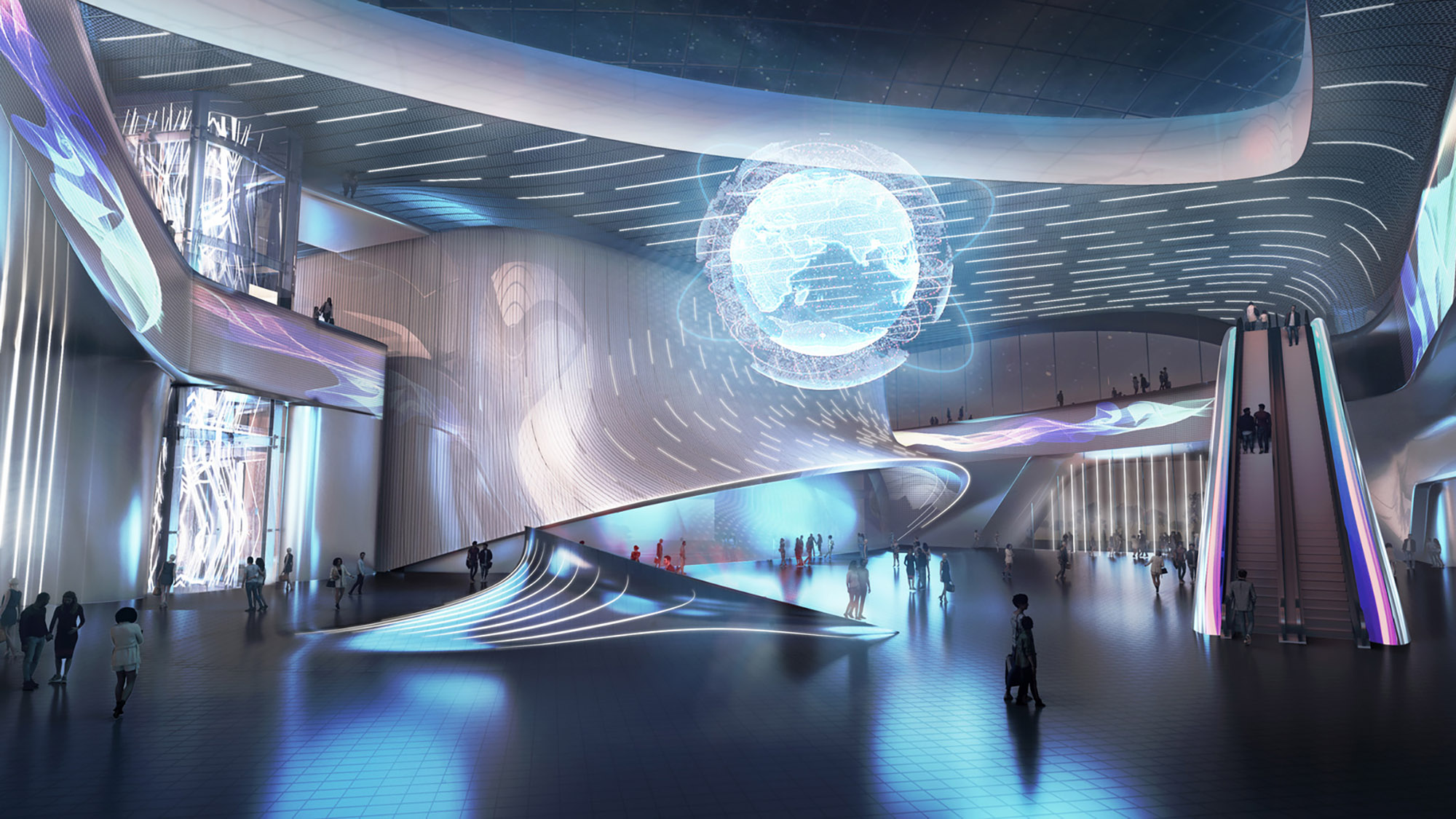
Architecture firm: Zaha Hadid Architects (ZHA)
Location: Chengdu, China
Principal architect: Patrik Schumacher
Design team: ZHA Project Team: Andrei Cojocaru, Berkin Islam, Chu Zhou, Hao Wen, Jillian Nishi, Lianyuan Ye, Meng Zhao, Shang Li, Stefan Manousof, Sven Torres, Yang Liu, Yuling Ma, Xiaoying Li. ZHA Competition Team: Andrei Cojocaru, Enoch Kolo, Jillian Nishi, Juan Montiel, Lianyuan Ye, Meng Zhao, Nan Jiang, Nastasja Mitrovic, Stefan Manousof, Yanran Lu, Yimeng Zhao, Yuling Ma. ZHA Competition Sustainability Team: Aleksander Mastalski, Carlos Bausa Martinez
Collaborators: ZHA Competition Project Directors: Satoshi Ohashi, Paulo Flores. ZHA Competition Associate: Yang Jingwen. ZHA Competition Project Architects: Juan Liu, Magda Smolinska.
Visualization: ATCHAIN
Built area: 59,000 m²
Design year: 2022
Completion year: 2023
Budget: Undisclosed
Client: Chengdu Science and Innovation City Investment and Development Co.
Status: Under Development
Typology: Cultural › Museum
The new Chengdu Science Fiction Museum is situated on Jingrong Lake within the Science & Innovation New City of Chengdu's Pidu District. Integrating with the natural landscapes along the lakeshore, the museum's design defines nodes of activity connected by pedestrian routes that extend from the city and adjacent metro station through the surrounding parkland into the heart of the building; creating a journey of discovery that weaves between indoor and outdoor plazas at multiple levels to link the museum's exhibition galleries, educational facilities, cafes and other amenities.
The city of Chengdu is a leading incubator of science fiction writing in China. Launching the careers of many of the country's most renowned authors, 'Science Fiction World' magazine has been published in the city since 1979 and is the genre's most popular periodical worldwide.
Surrounded by mountain ranges and forests, Chengdu cultivated a unique local culture rooted in its rich history that includes the mystical visions and extraterrestrial forms within the carvings and masks of the Bronze Age Sanxingdui civilization. The capital of Sichuan province in Southwest China, Chengdu has grown to a city of over 20 million residents and become important global center of scientific innovation and research.
Bringing together programmatic and functional clarity while responding to its unique site conditions, the museum appears to float above from the surface of the lake. The fluid forms of its roof radiate from a central point within, emulating an expanding nebula cloud with a star at its center - transforming the museum into a star cloud' that disperses energy fields into its many different zones; guiding visitors through a portal that connects our lived experience with our imagination.
Incorporating maximum flexibility to host the widest variety of exhibitions, conferences and events, the 59,000 sq. m Chengdu Science Fiction Museum includes exhibition galleries, theatre, conference hall, and supporting ancillary spaces. The sky-lit central atrium and it's large window facing the spectacular Xiling Mountain connect the museum's interiors with their surrounding environment.
Meeting the highest 3 Star standards of China's Green Building Program, the museum's design has been developed through detailed digital modelling analysis to maximize efficiencies in composition, site conditions, solar irradiation and structure. Natural hybrid ventilation optimizes Chengdu's mild subtropical climate to provide comfort for visitors and staff throughout the year. Photovoltaics embedded within the museum's large roof canopy contribute to meeting the building's energy demands. The dimensions of this roof have been calculated to shade the glazed facades in summer.
Landscaped with plants native to the region, the design collects and stores rainwater for natural filtration and reuse, enabling Jingrong Lake to become an integral part of Chengdu's sustainable drainage system that will mitigate flooding and increase biodiversity throughout the city.
Connecting the past, present and future, the new Chengdu Science Fiction Museum will become a vibrant center of innovation and gathering place for the city. Later this year, the museum will be the main venue of the World Science Fiction Convention (Worldcon) and host the Hugo Awards.
Established in 1939, the annual convention is the world's largest science fiction event. Named after Hugo Gernsback, founder of the pioneering science fiction magazine 'Amazing Stories', the Hugo Awards have been presented at Worldcon by the World Science Fiction Association since 1955 and are the highest recognition for science fiction and fantasy literature, as well as work in other media.
In 2015, Chinese author Liu Cixin's 'The Three-Body Problem' won the 73rd Hugo Award for Best Novel, and in 2016 author Hao Jingfang's work 'Folding Beijing' received the Hugo Award for Best Novelette; making the Hugo Awards a household name throughout China. Hosting Worldcon and the Hugo Awards within the Chengdu Science Fiction Museum will be the first time the events have been held in China.
Source: Zaha Hadid Architects (ZHA)
m i l i m e t d e s i g n – w h e r e t h e c o n v e r g e n c e o f u n i q u e c r e a t i v e s


